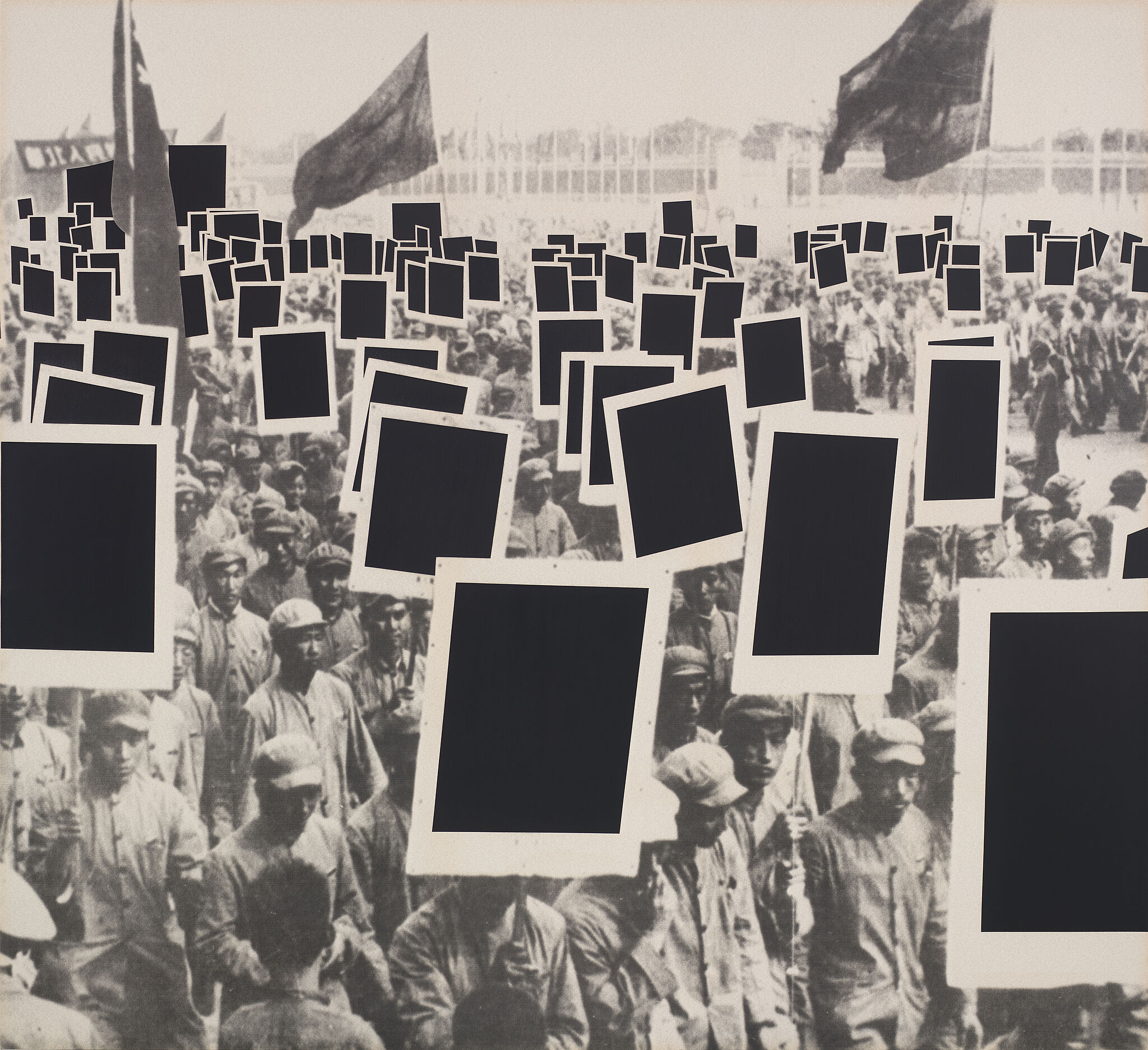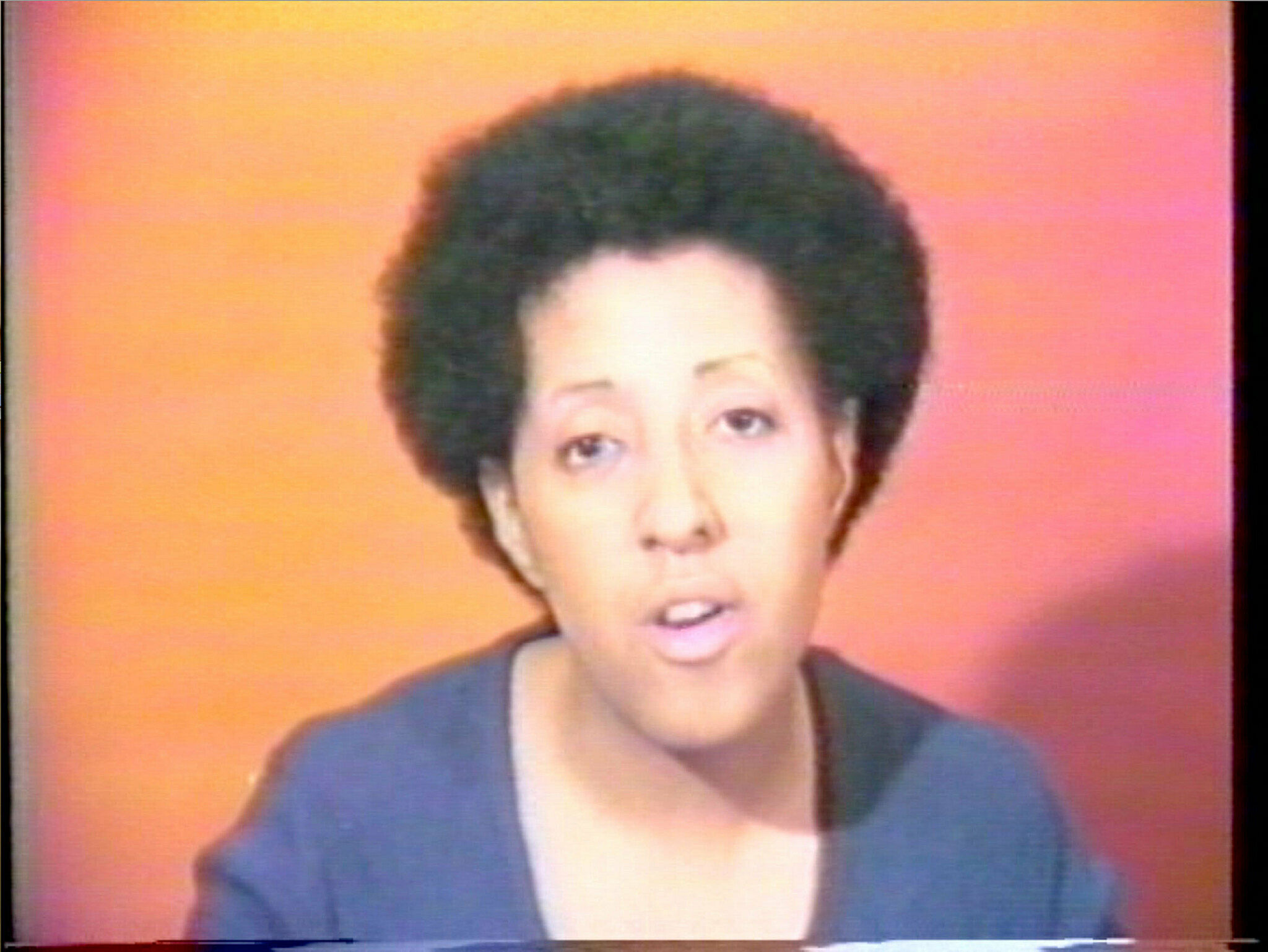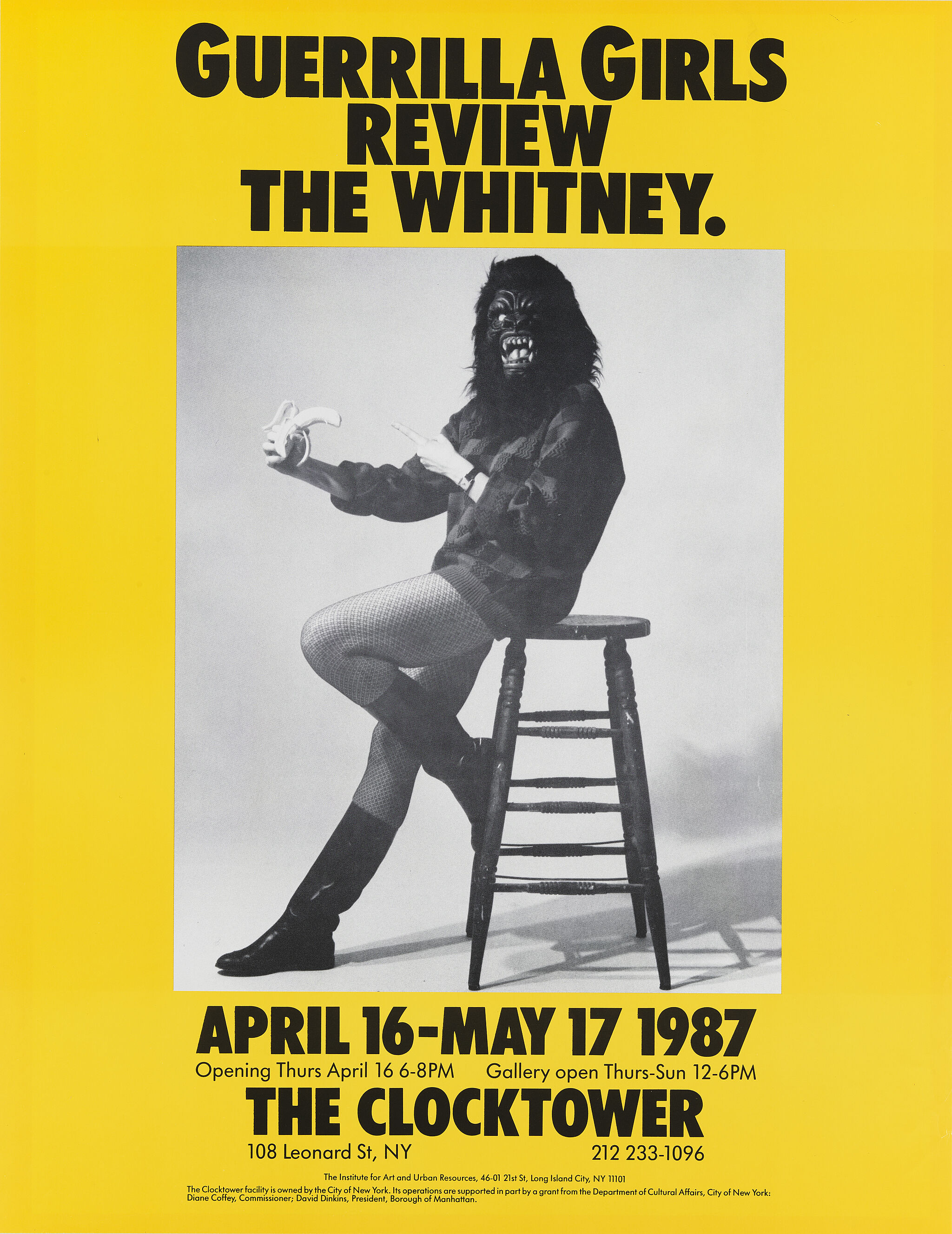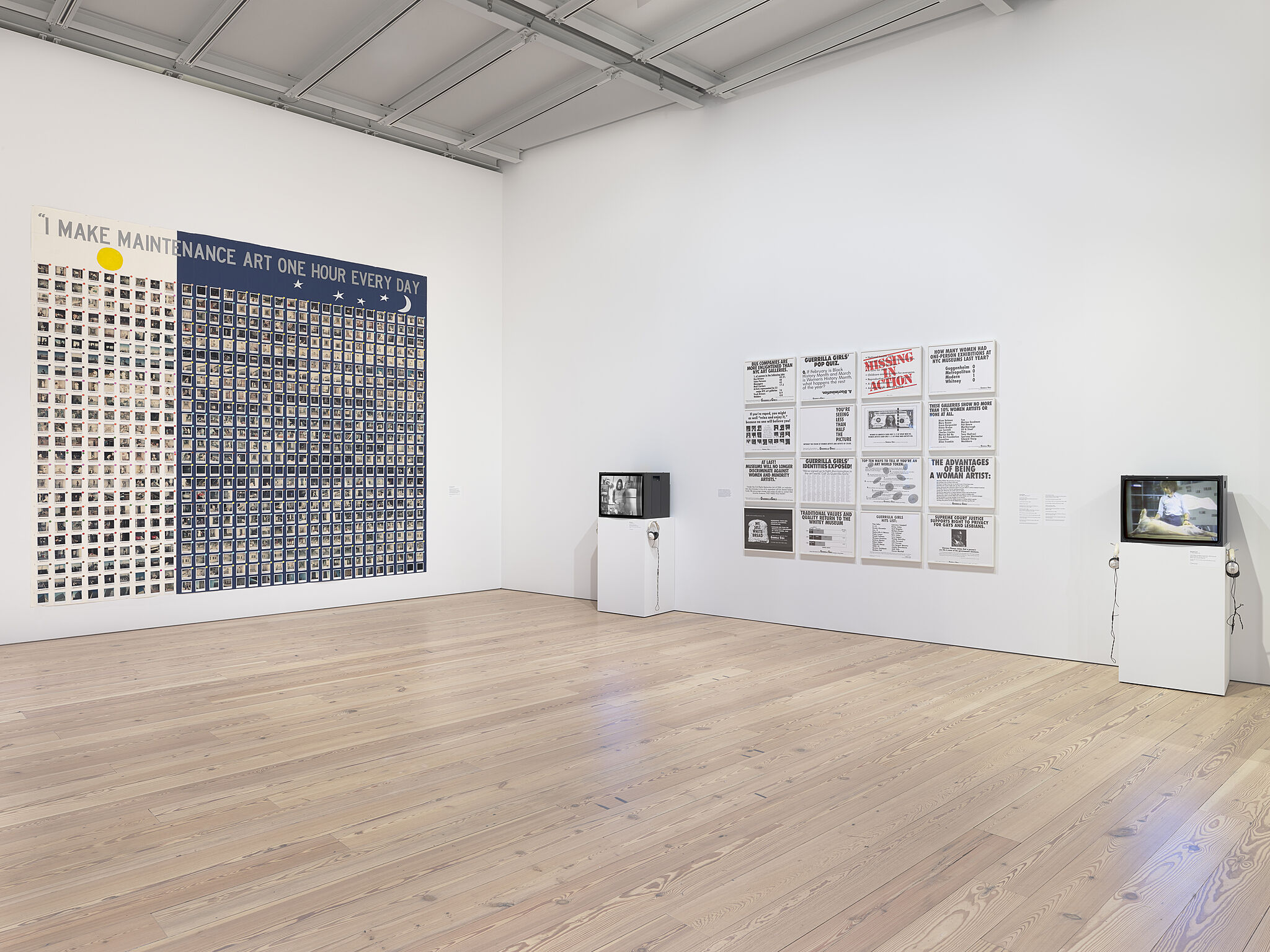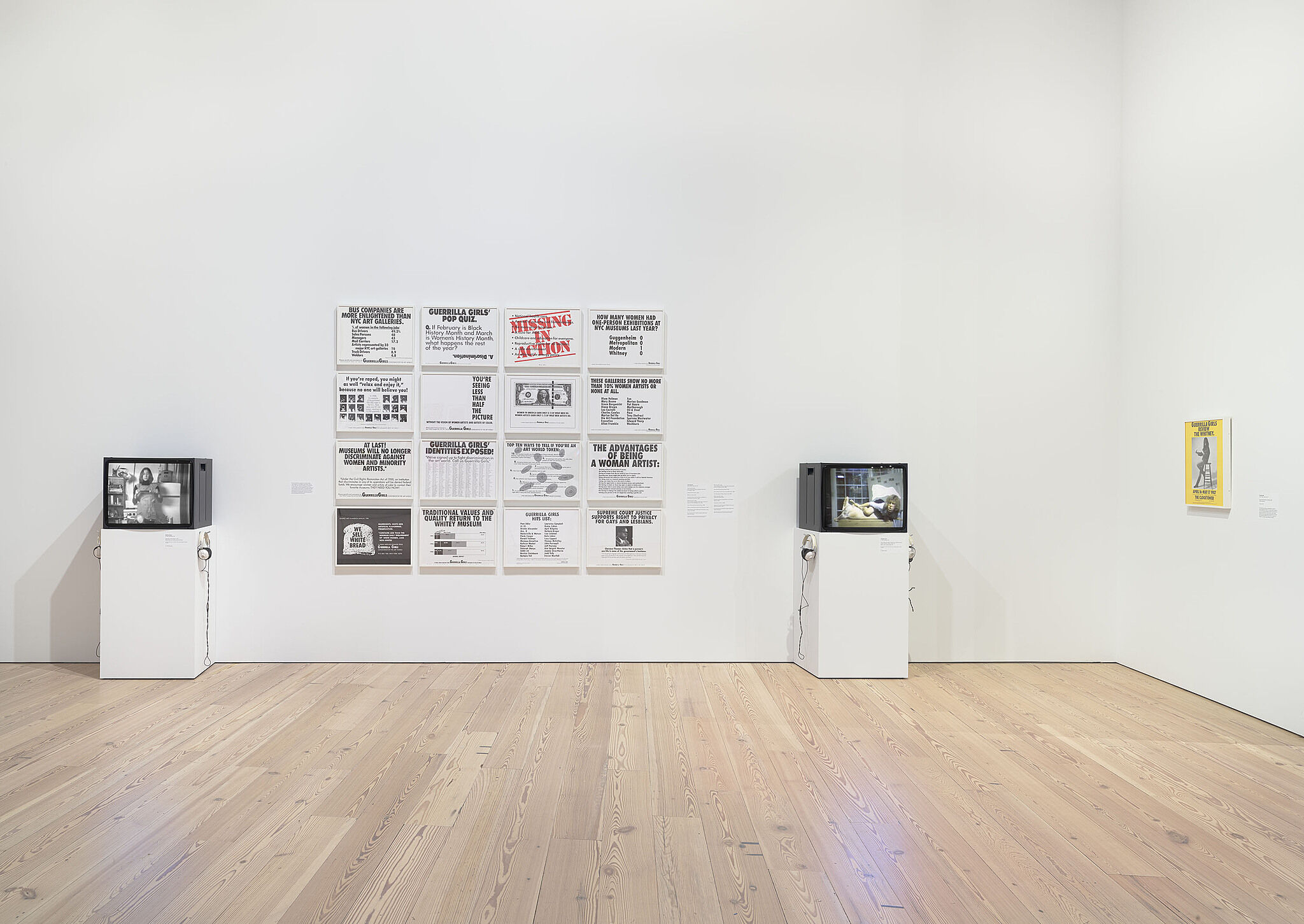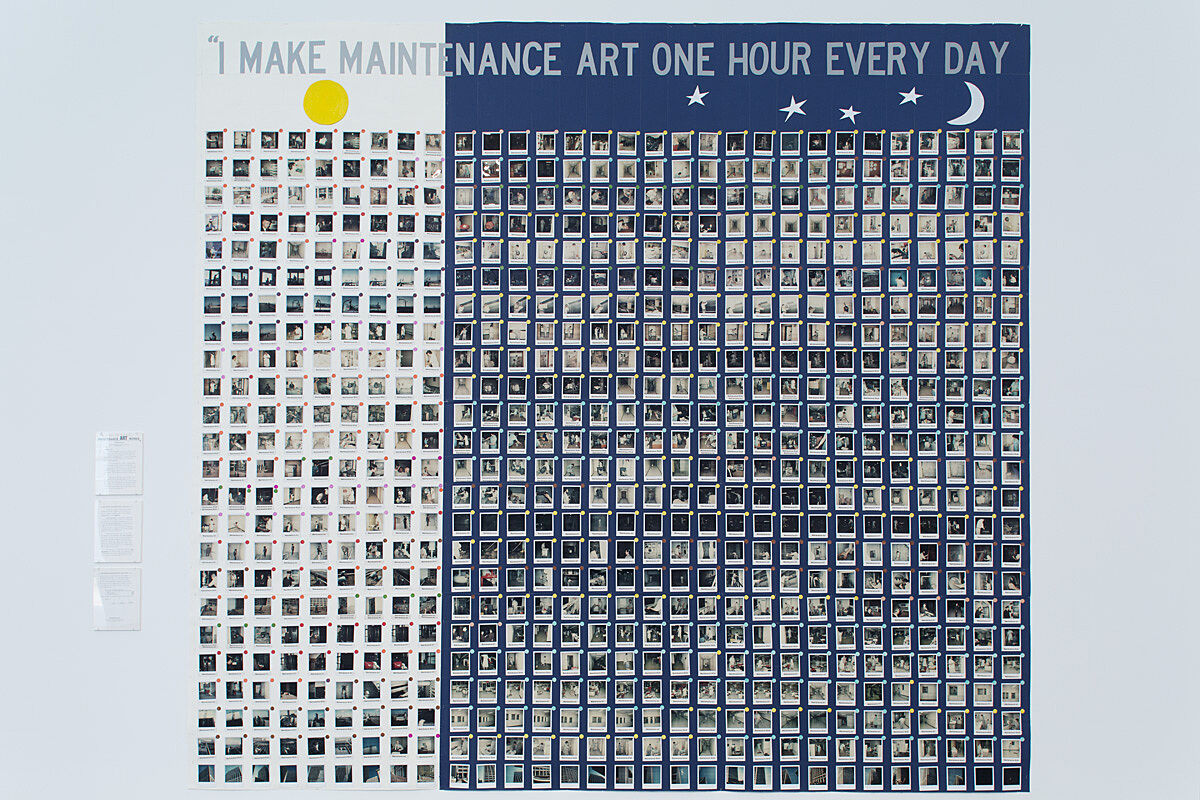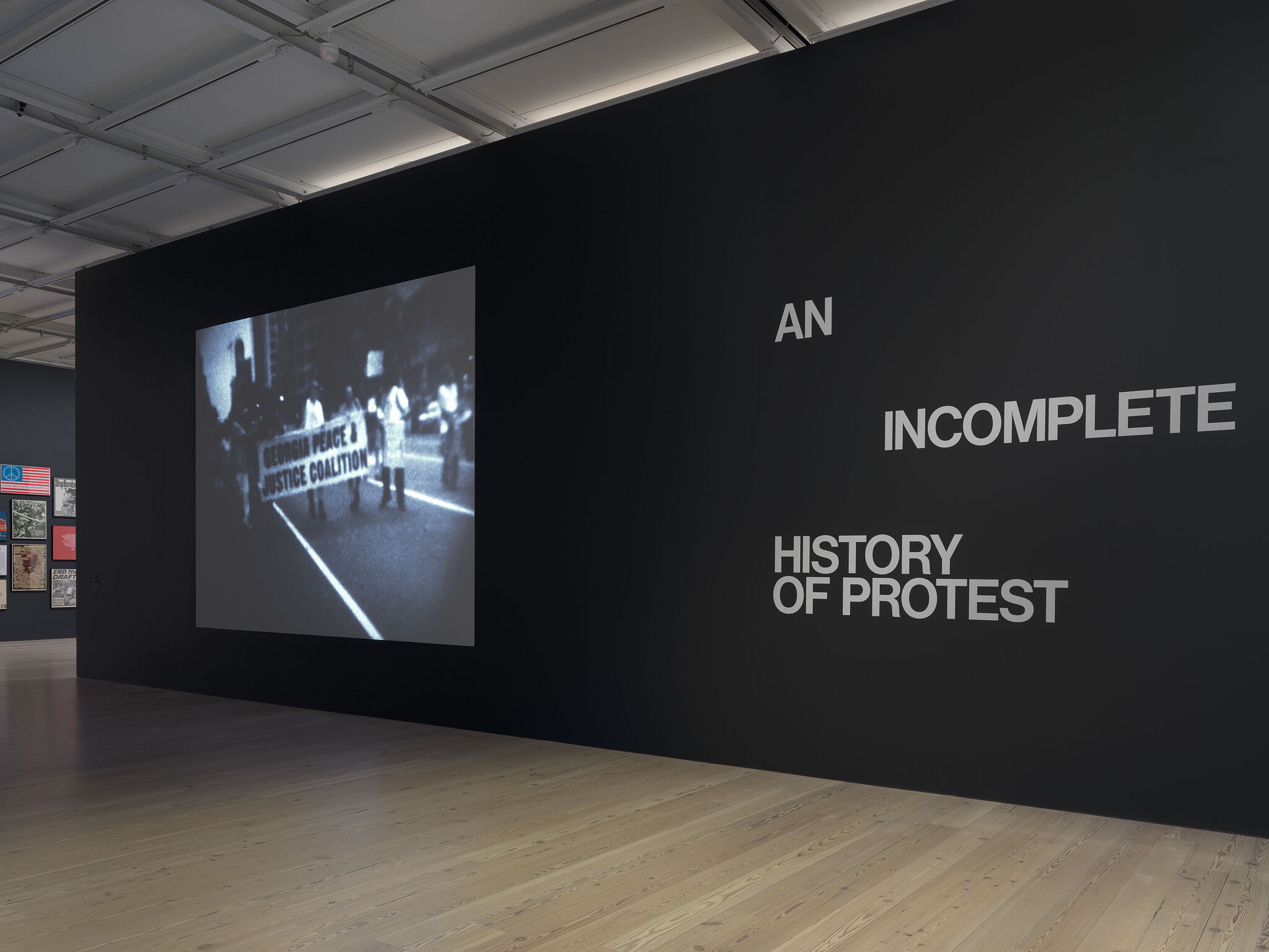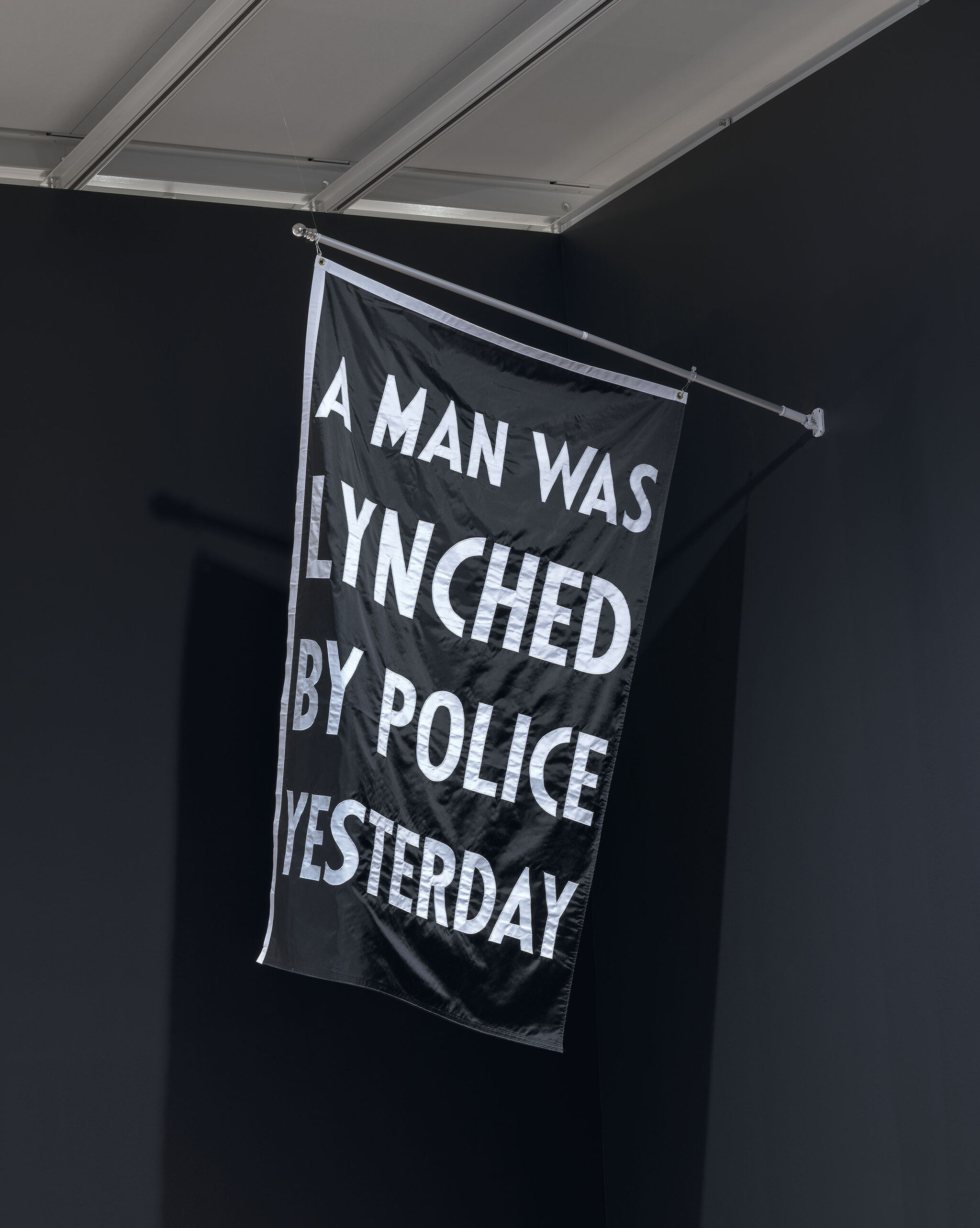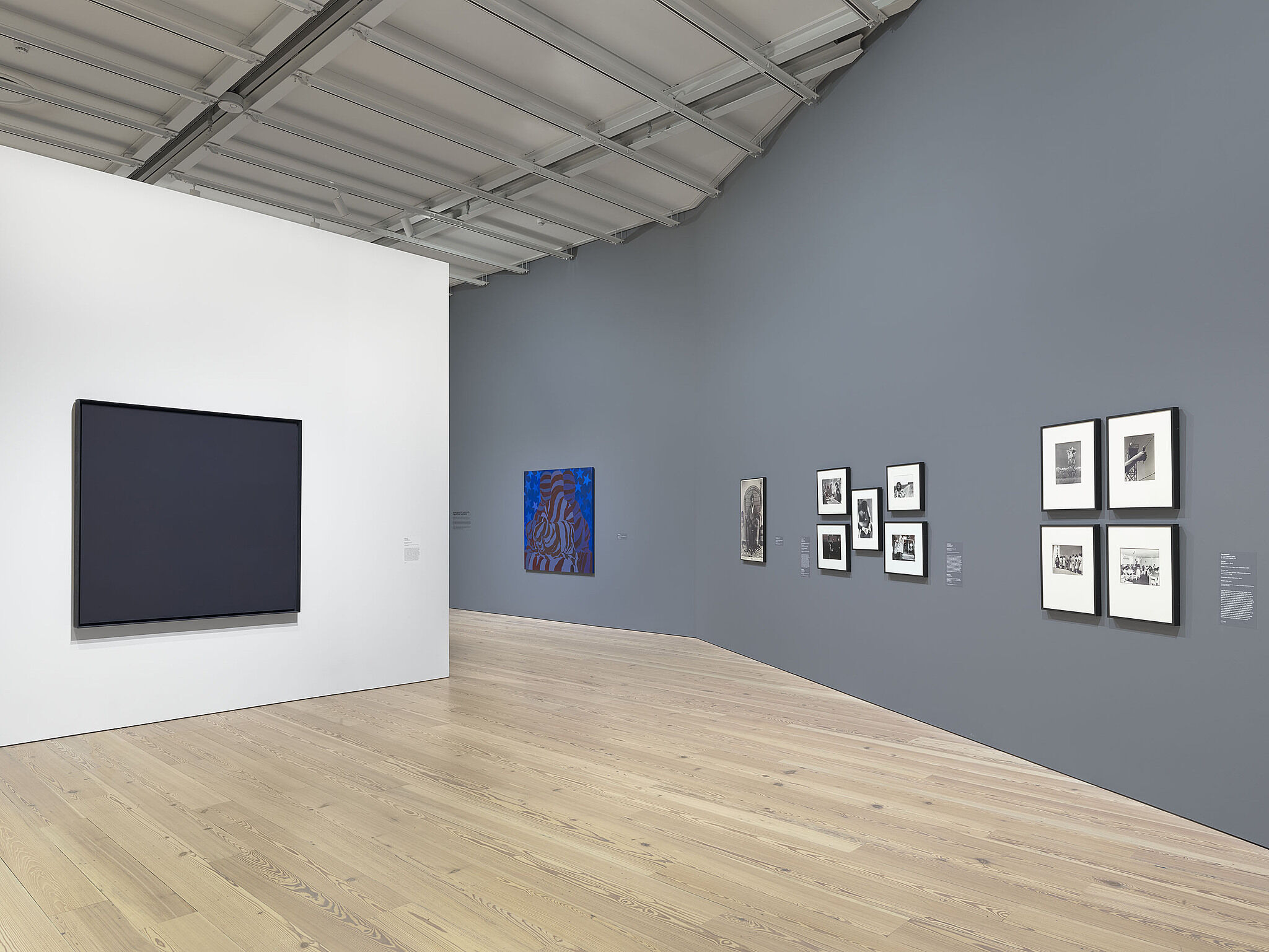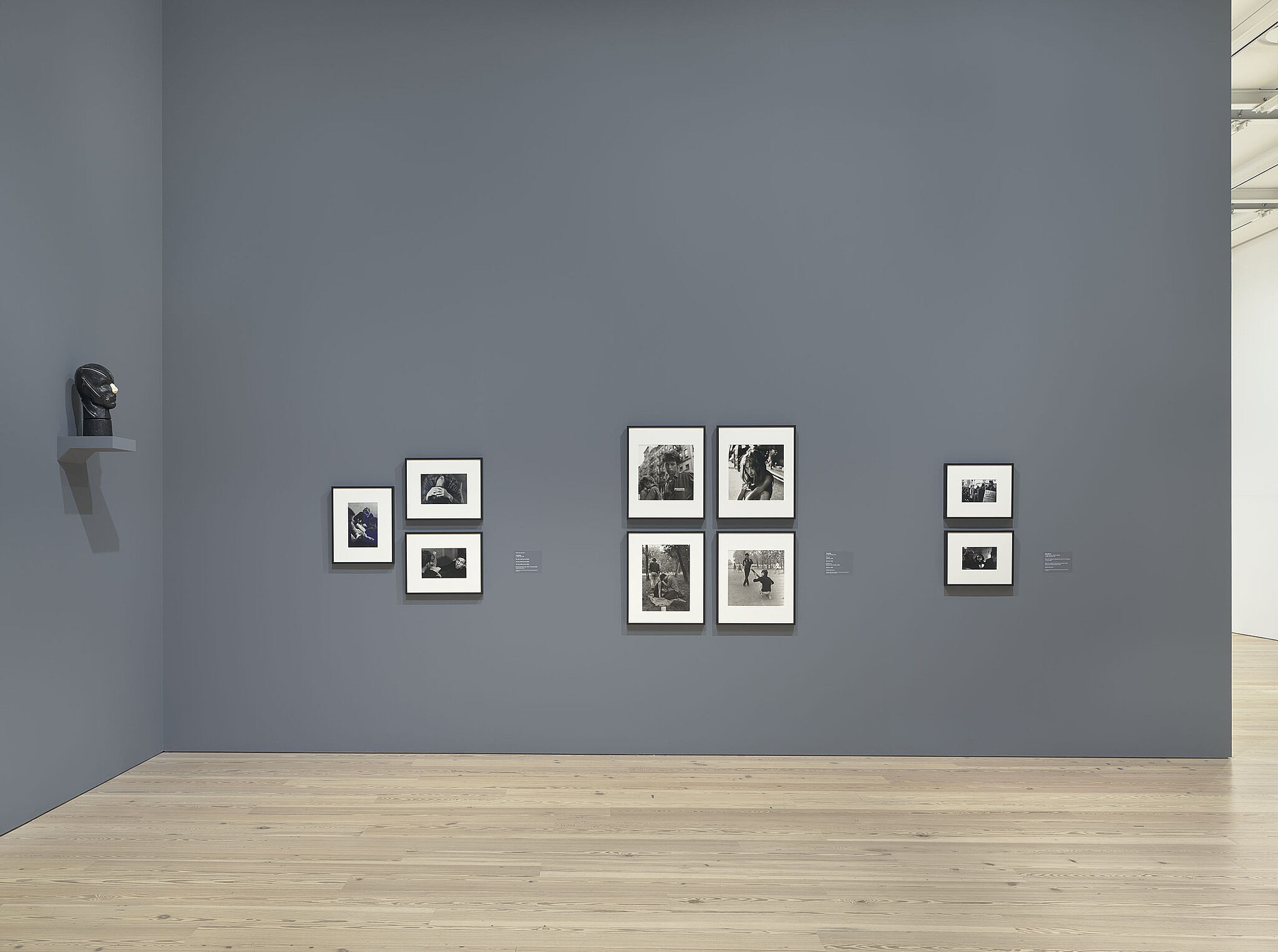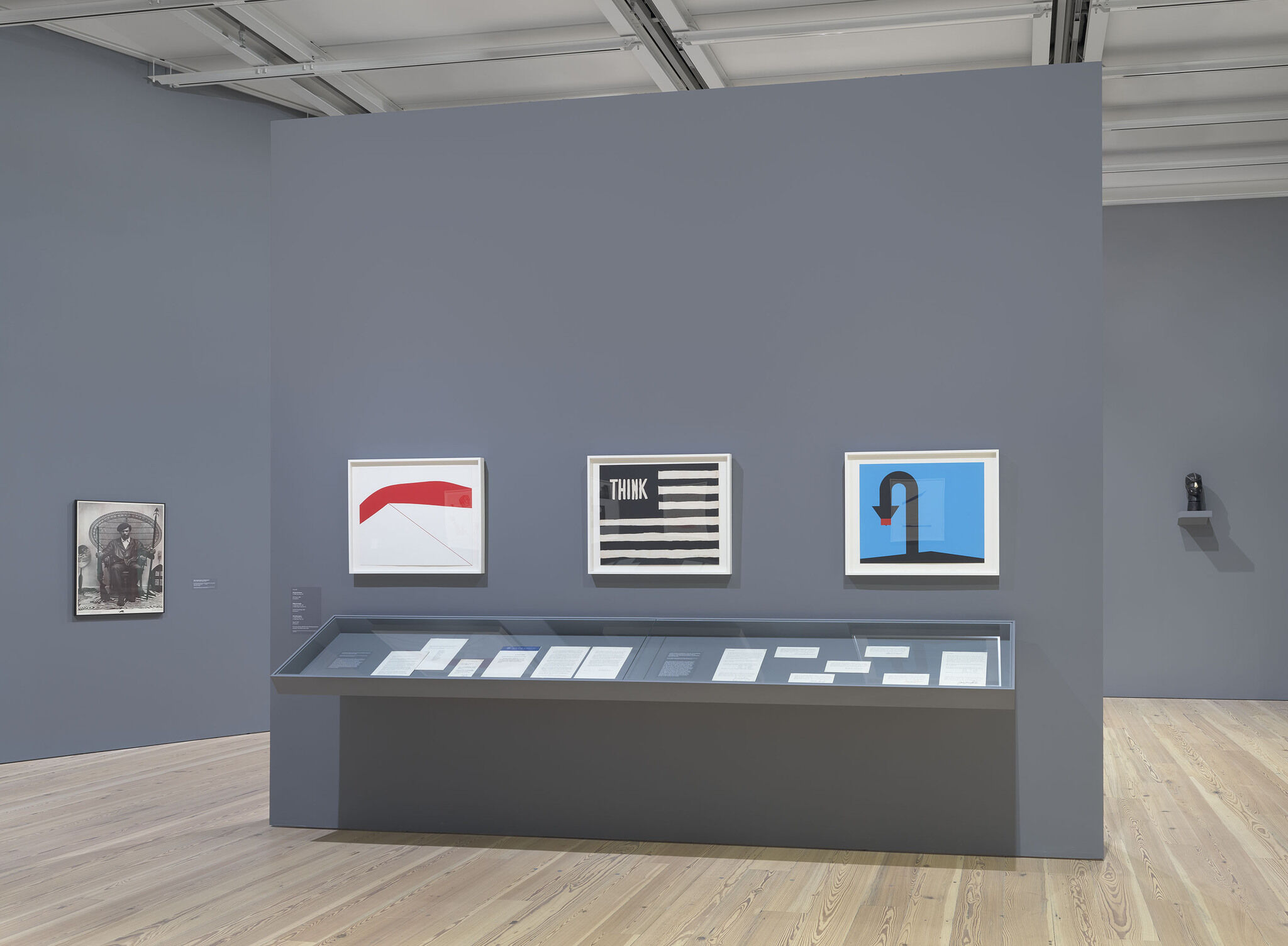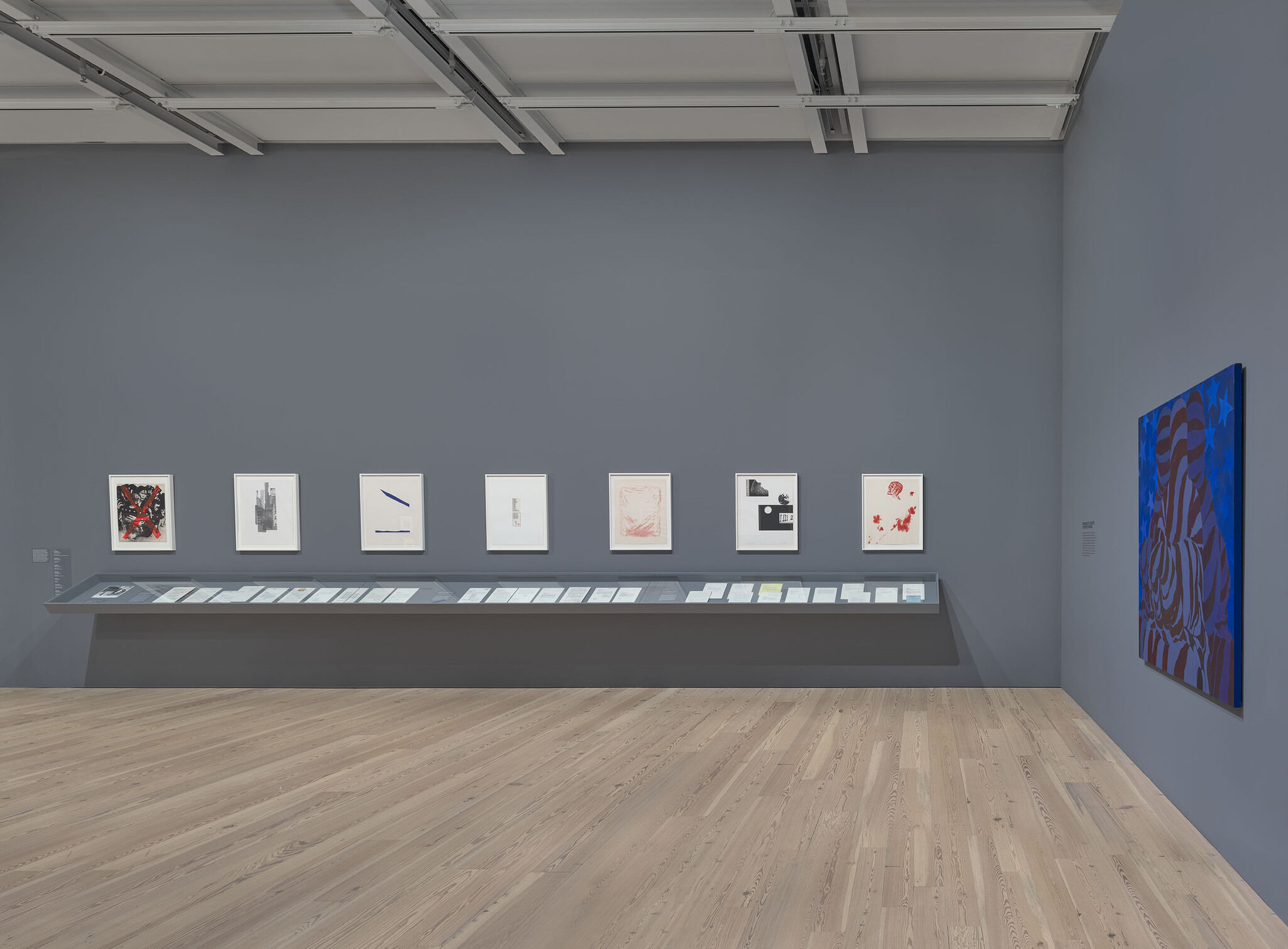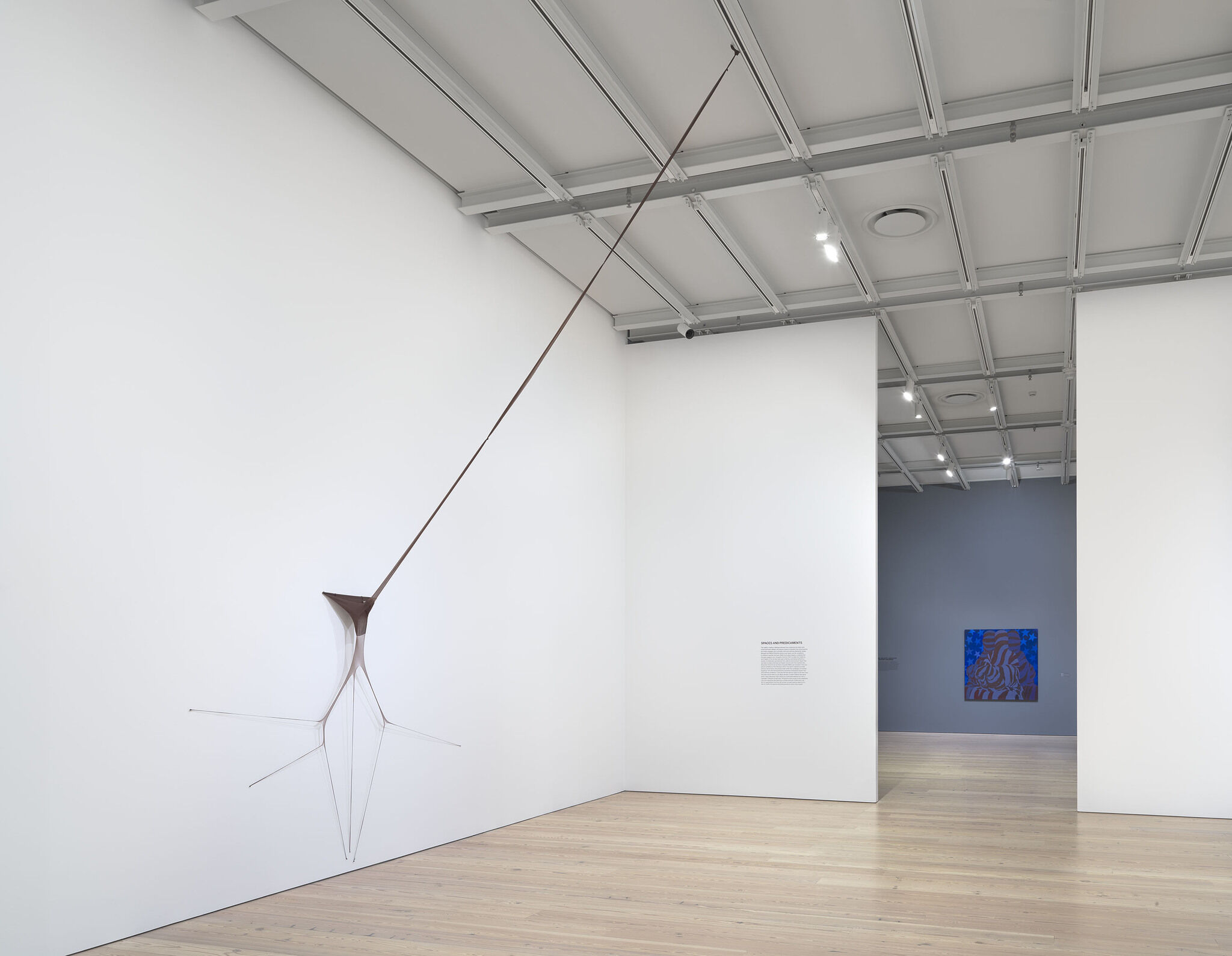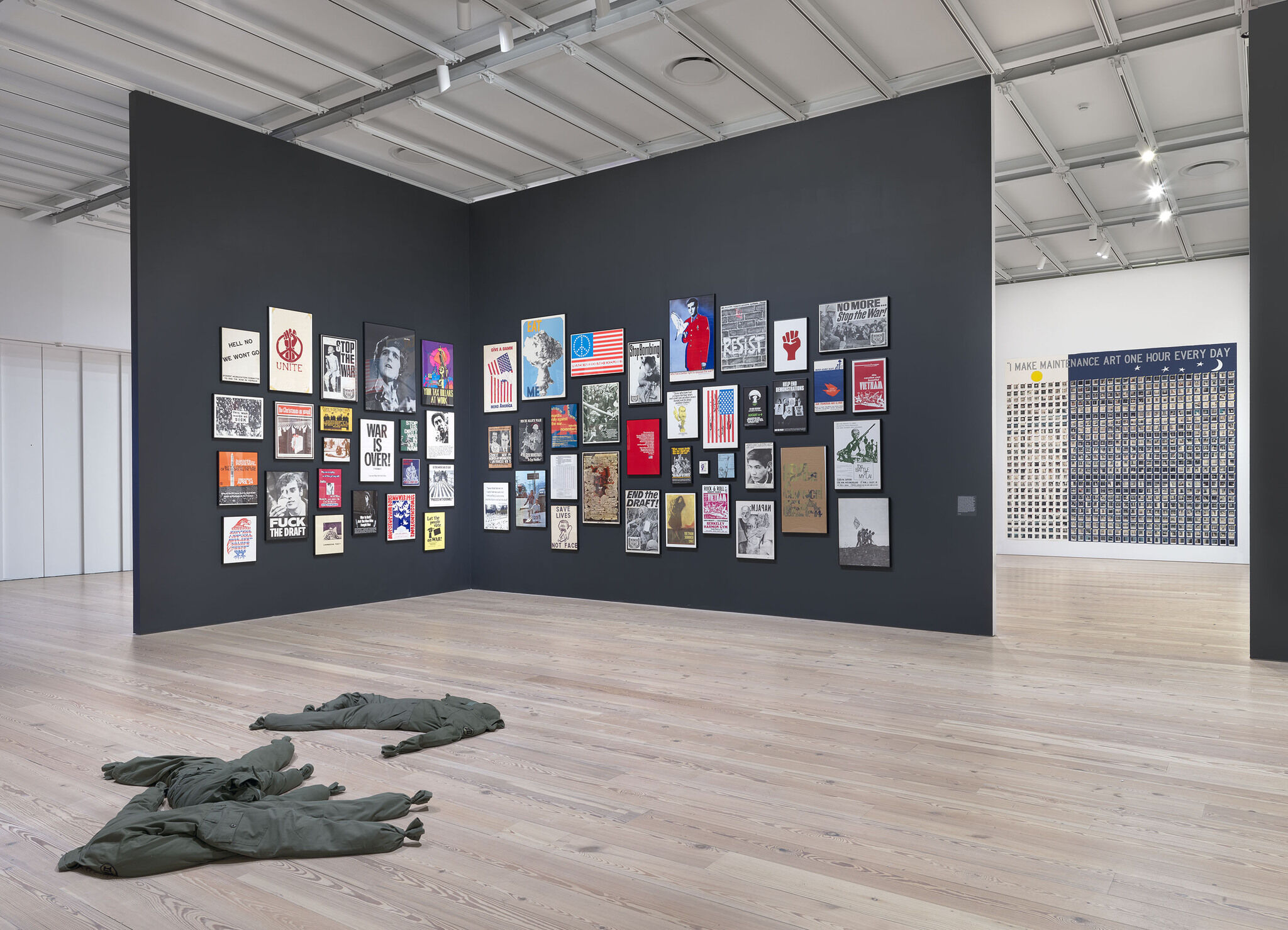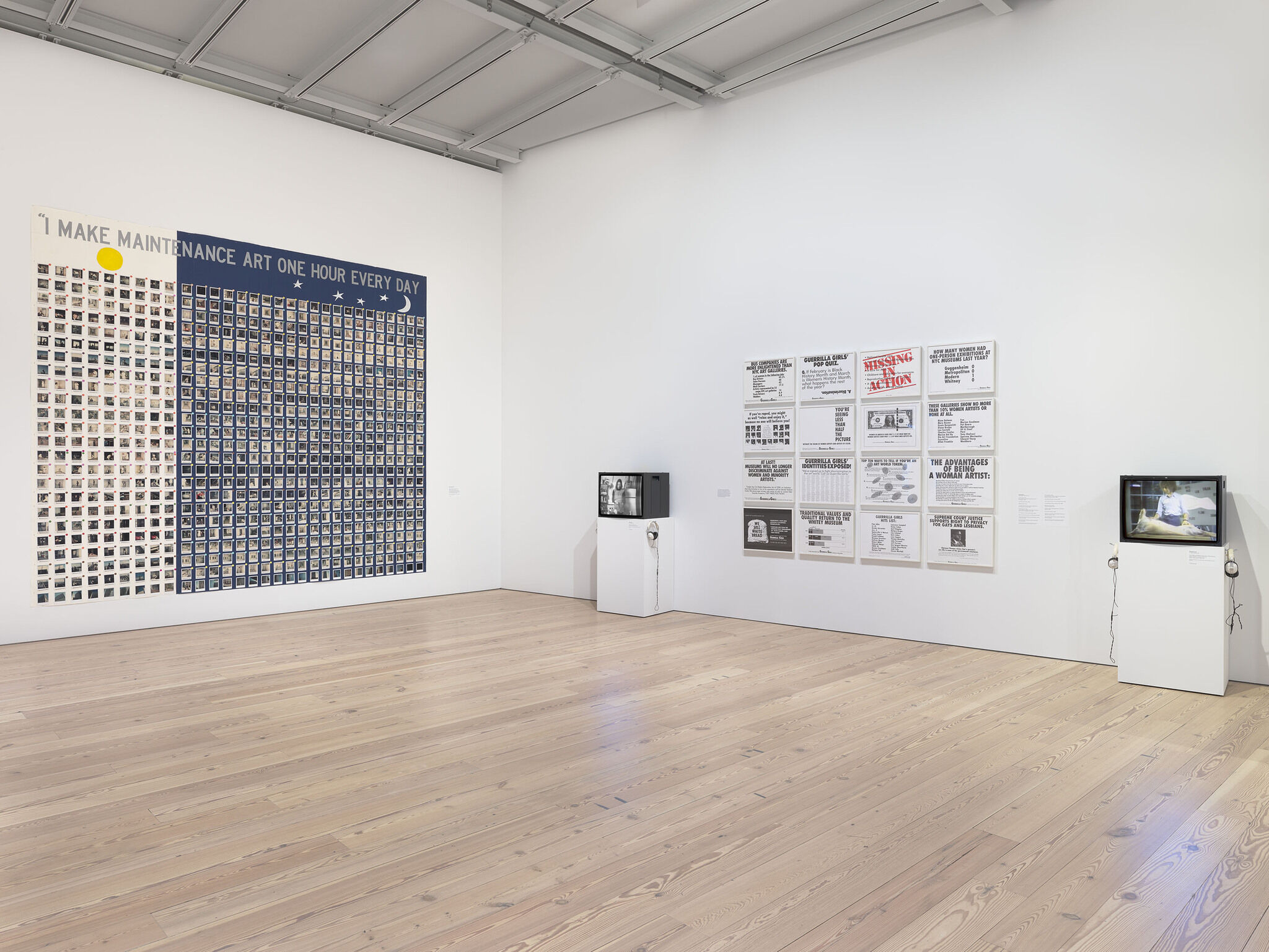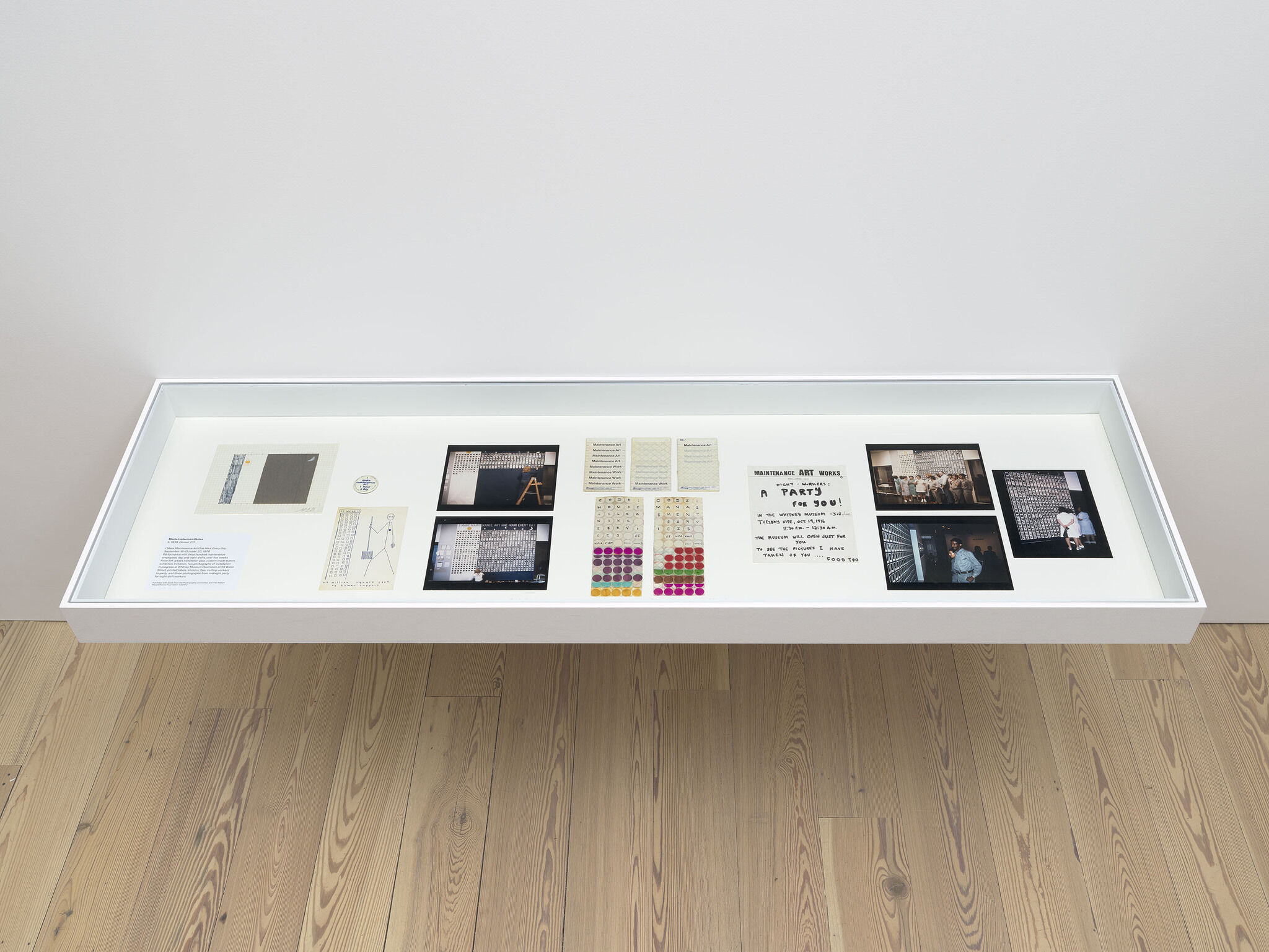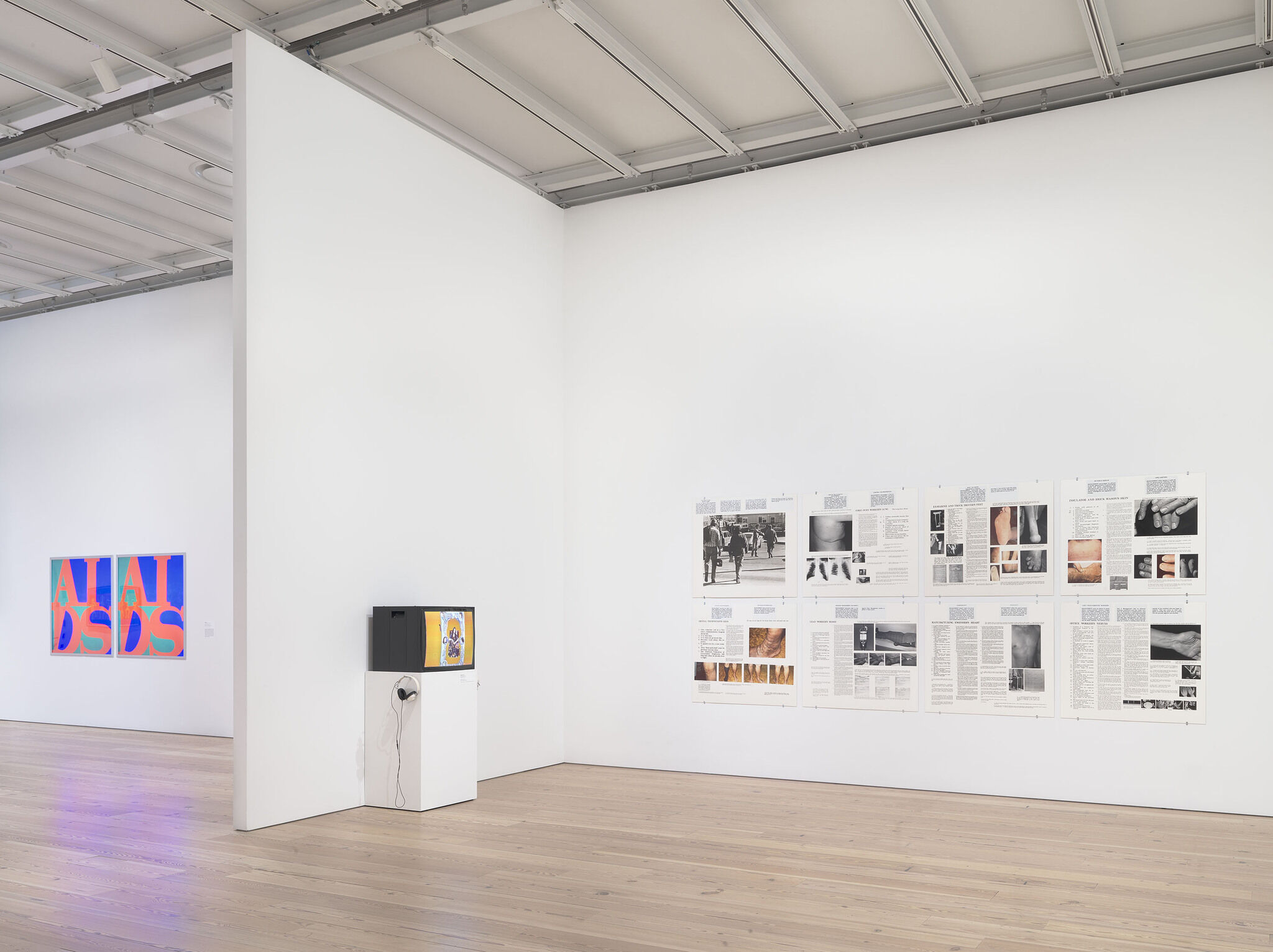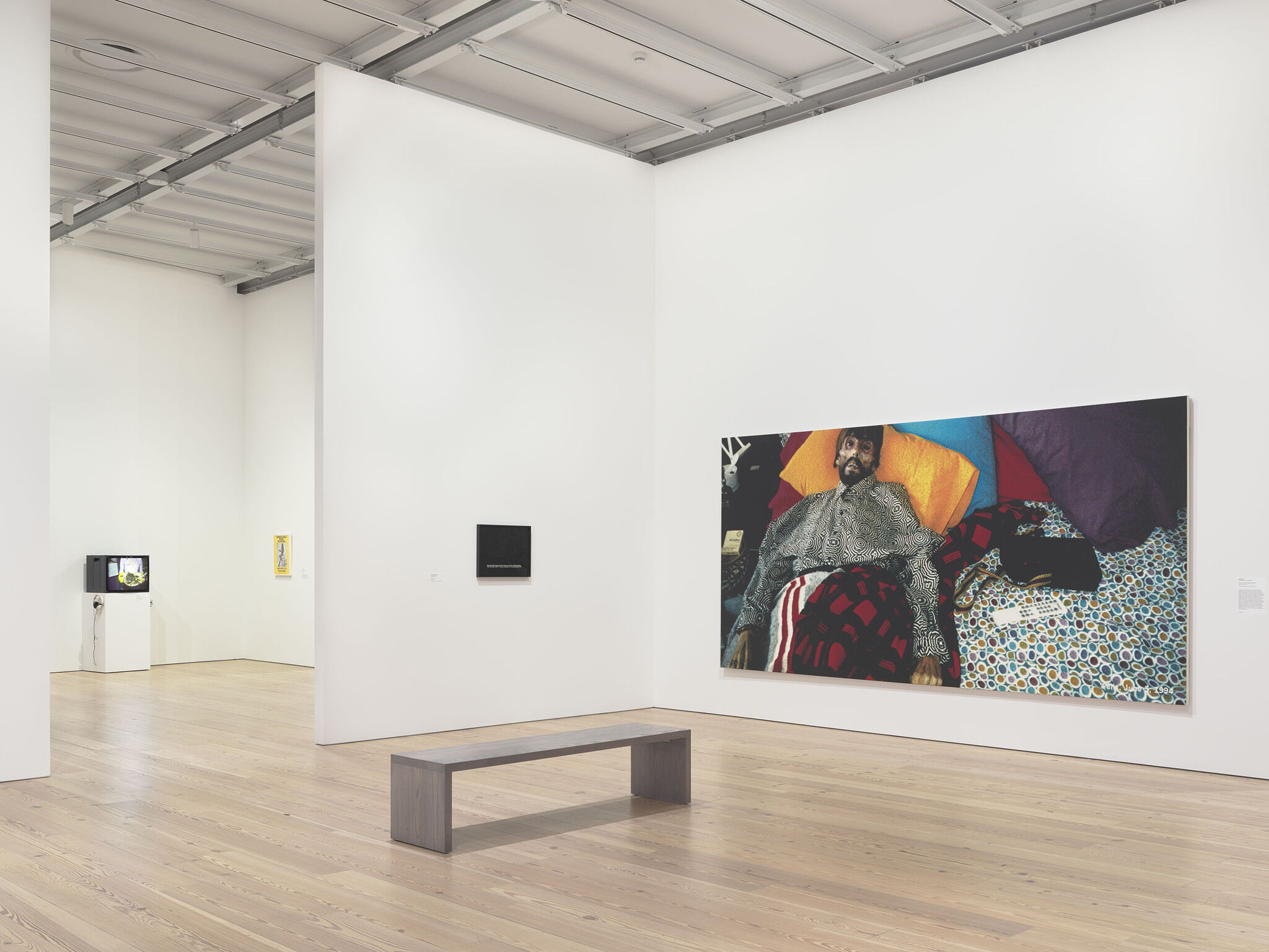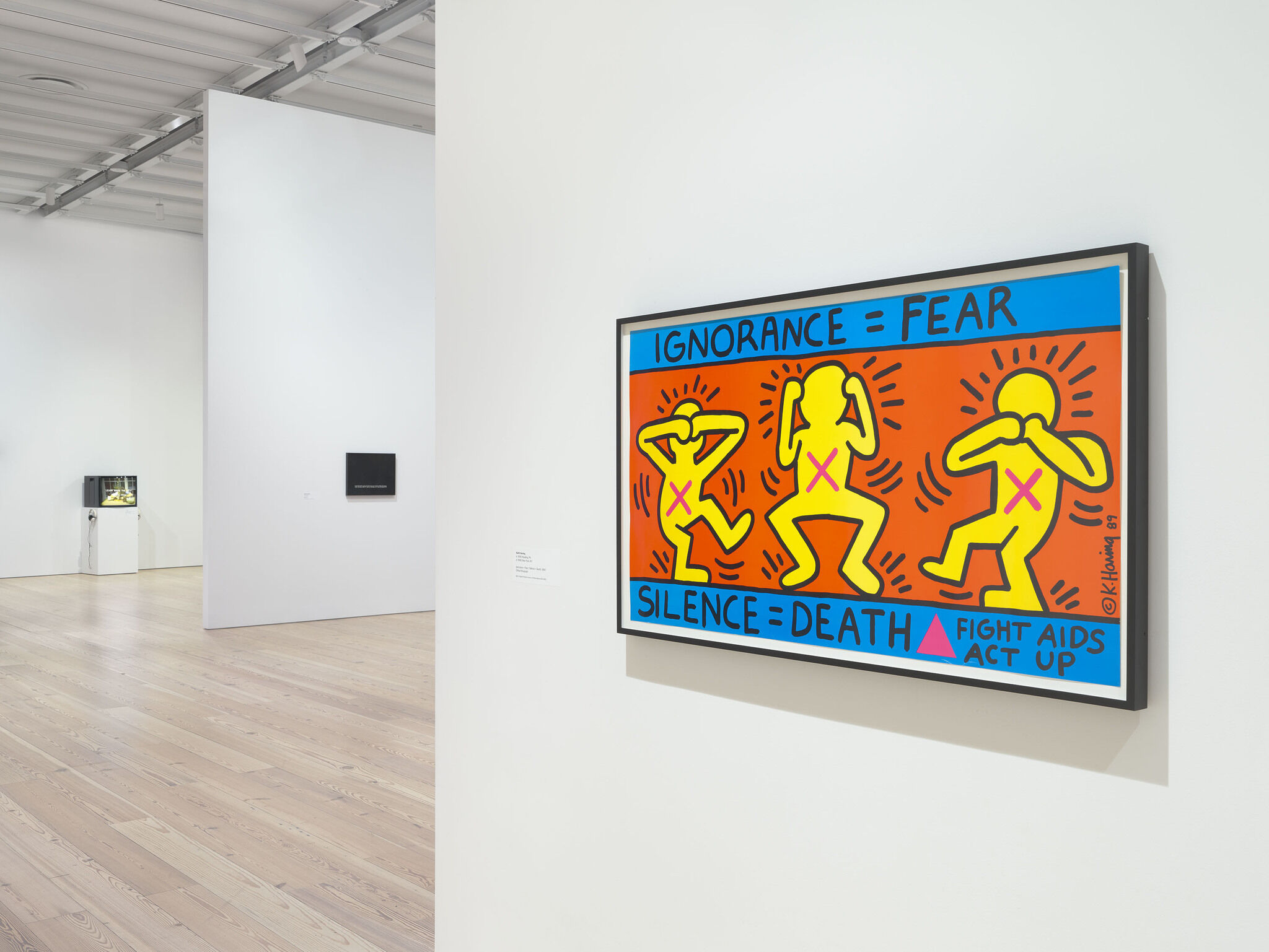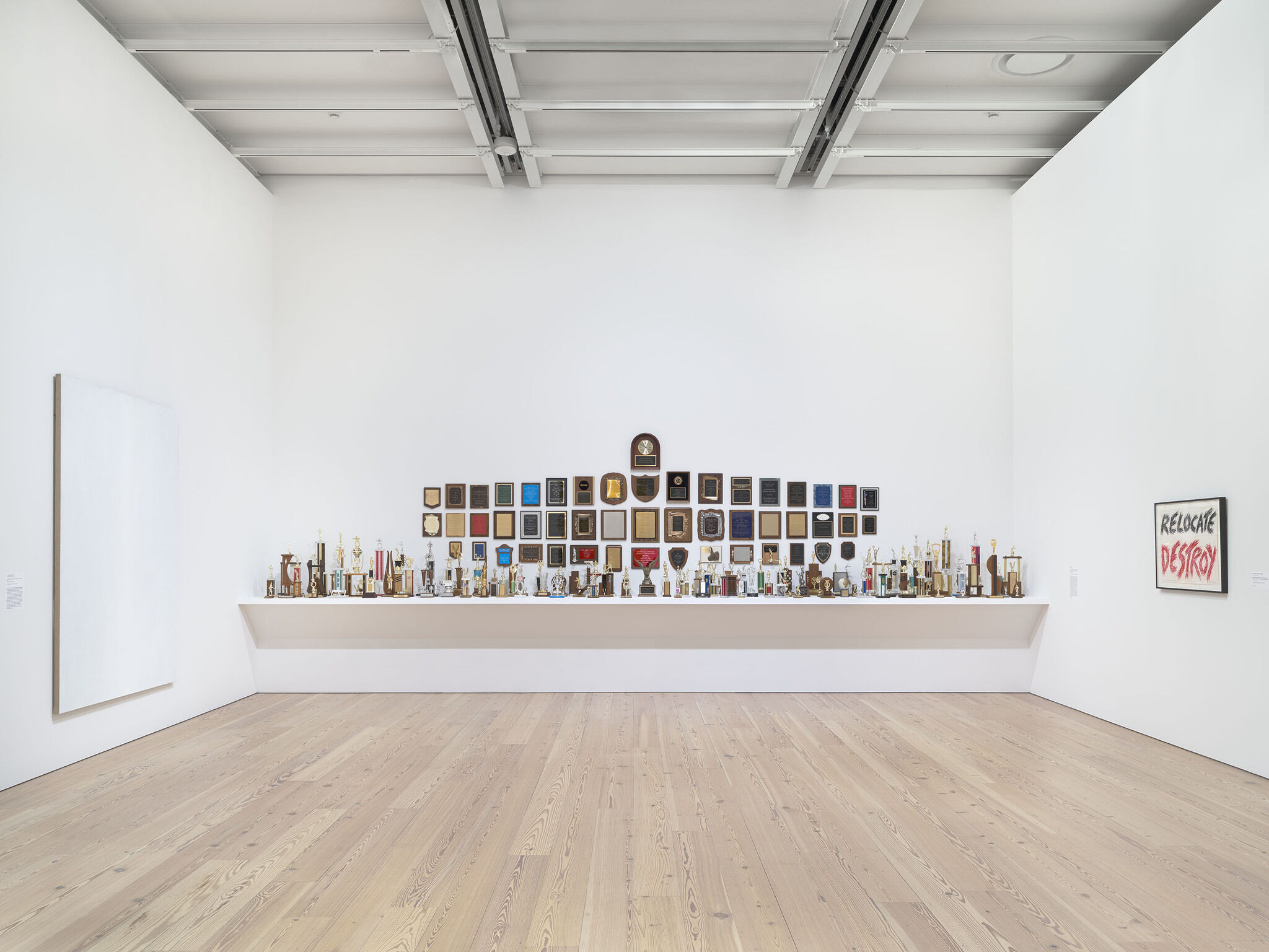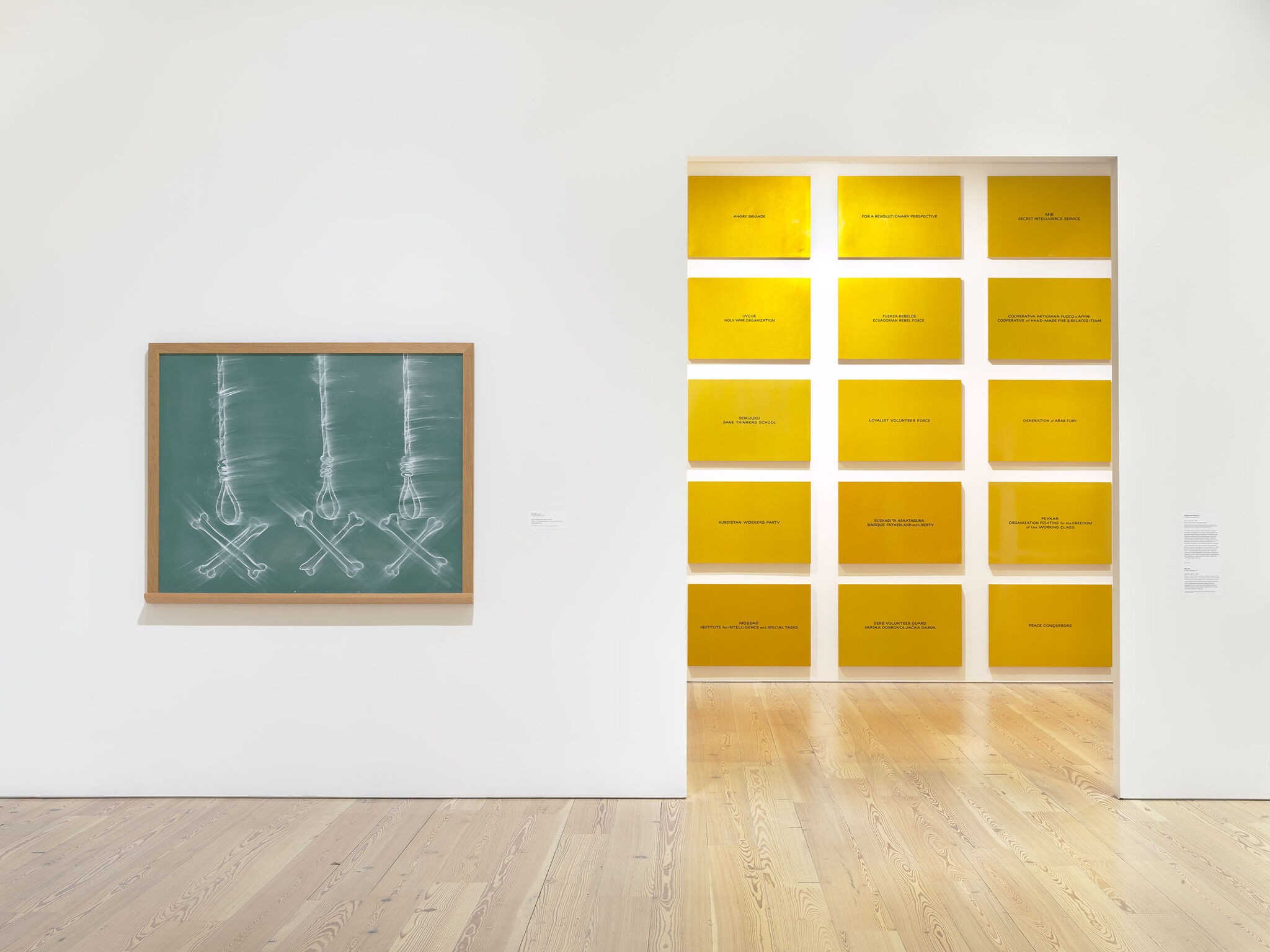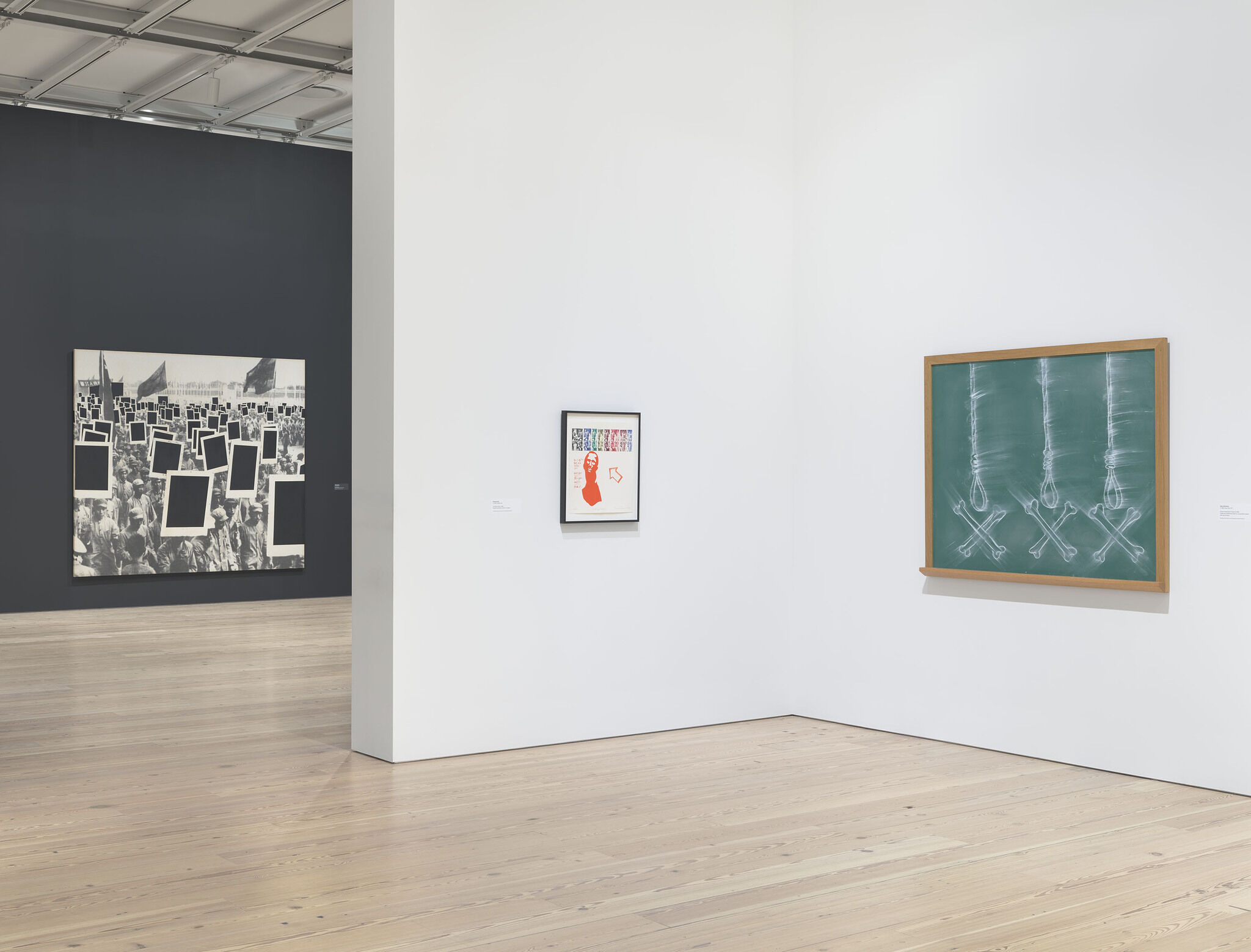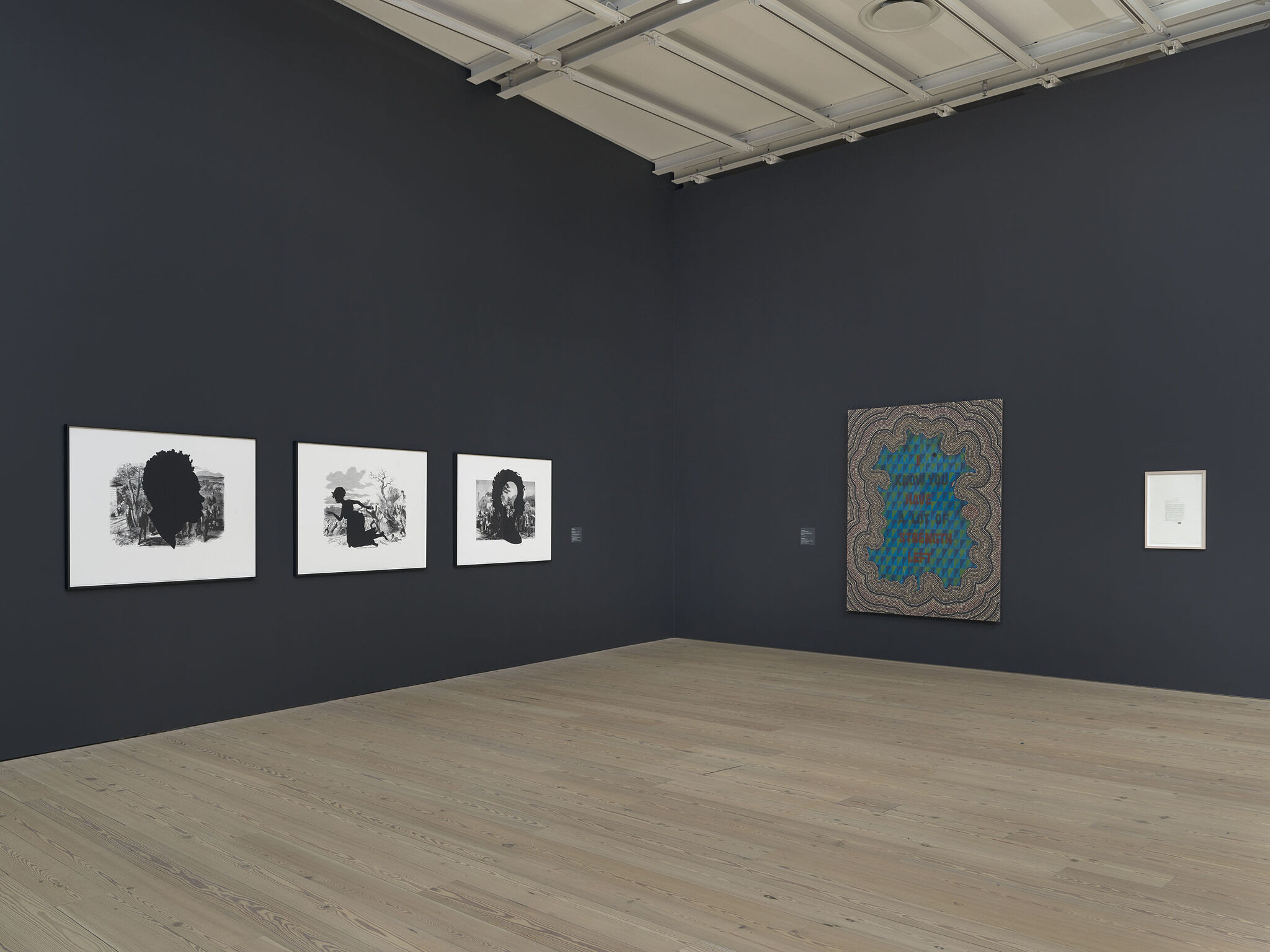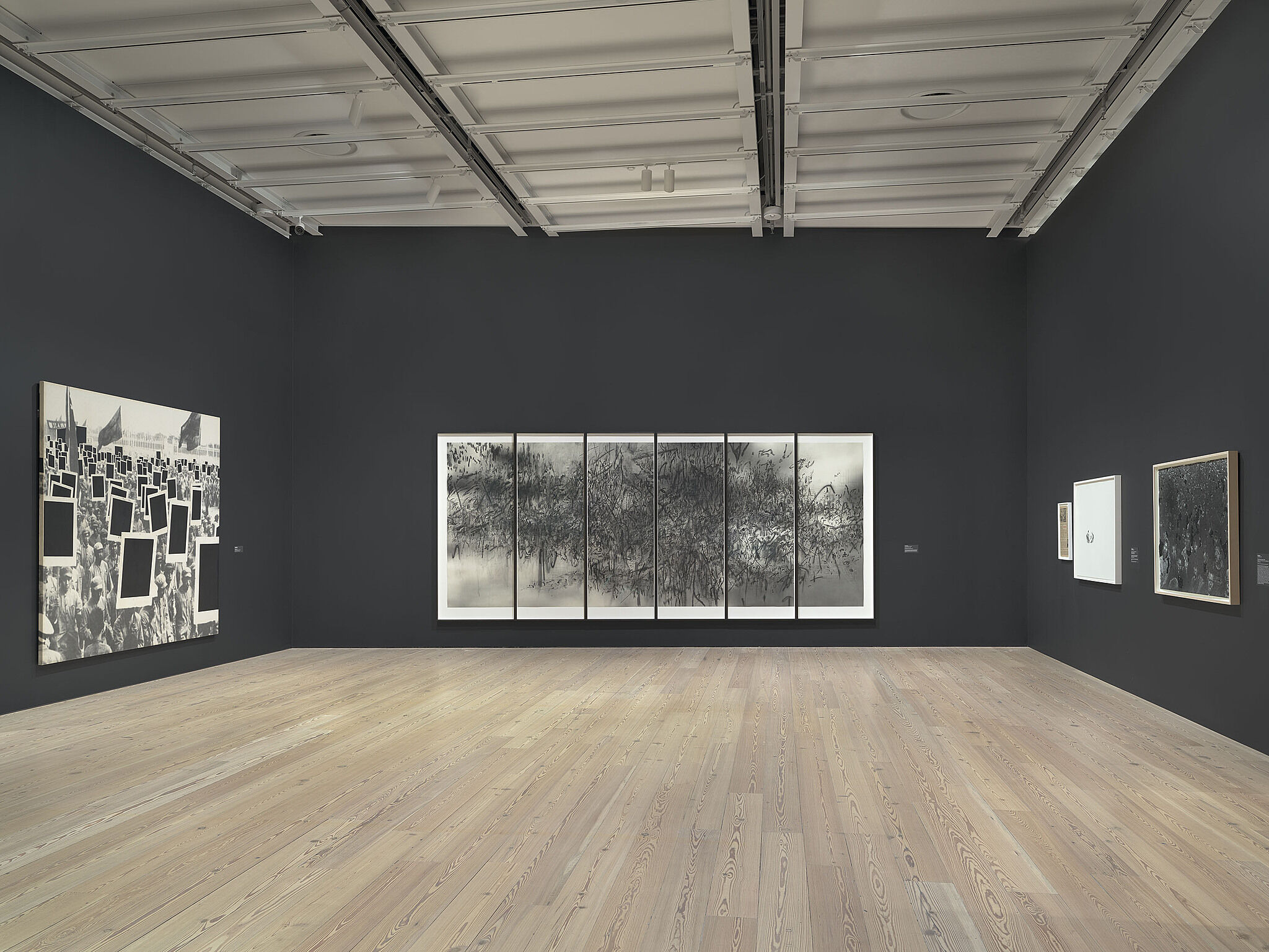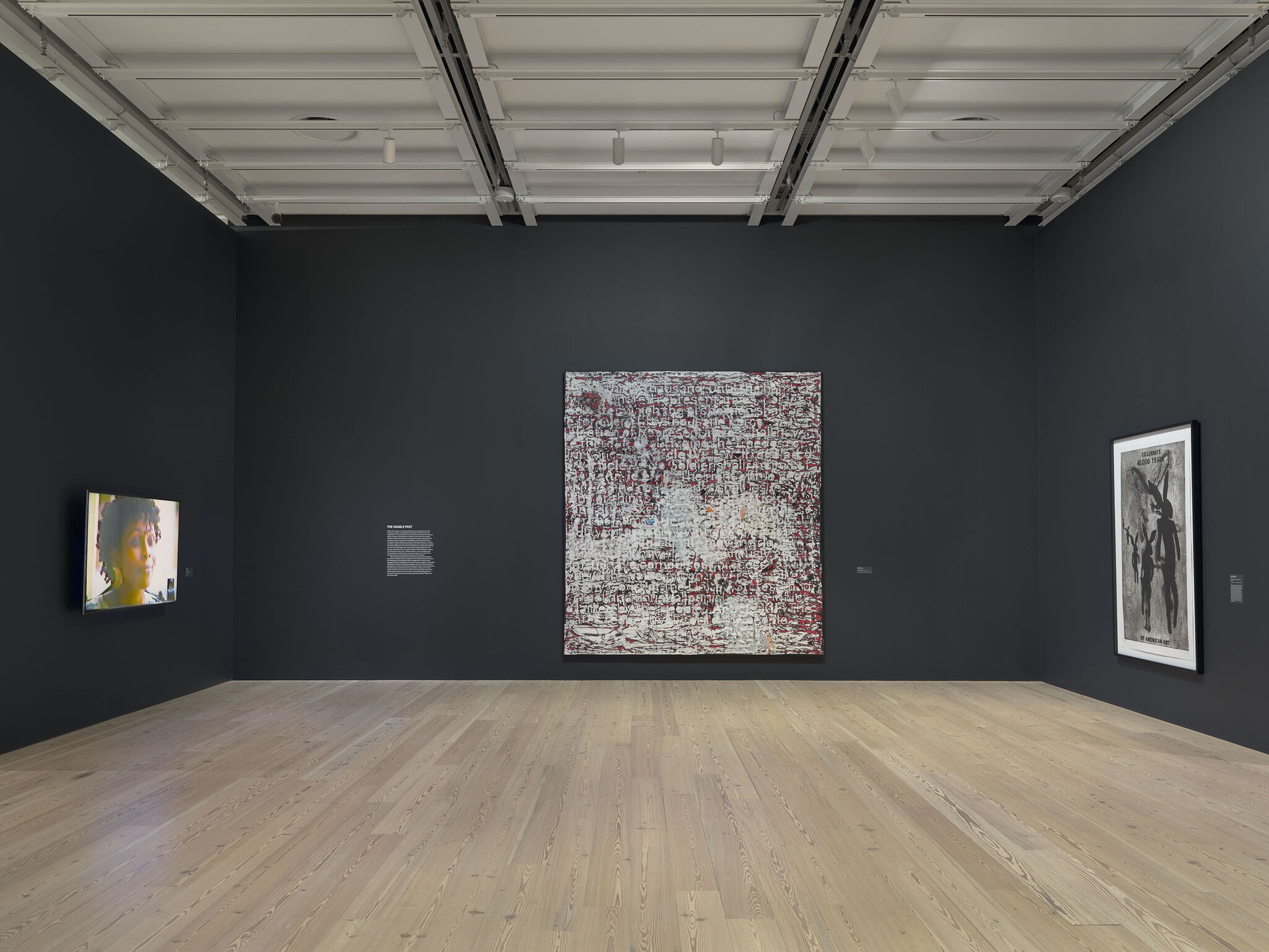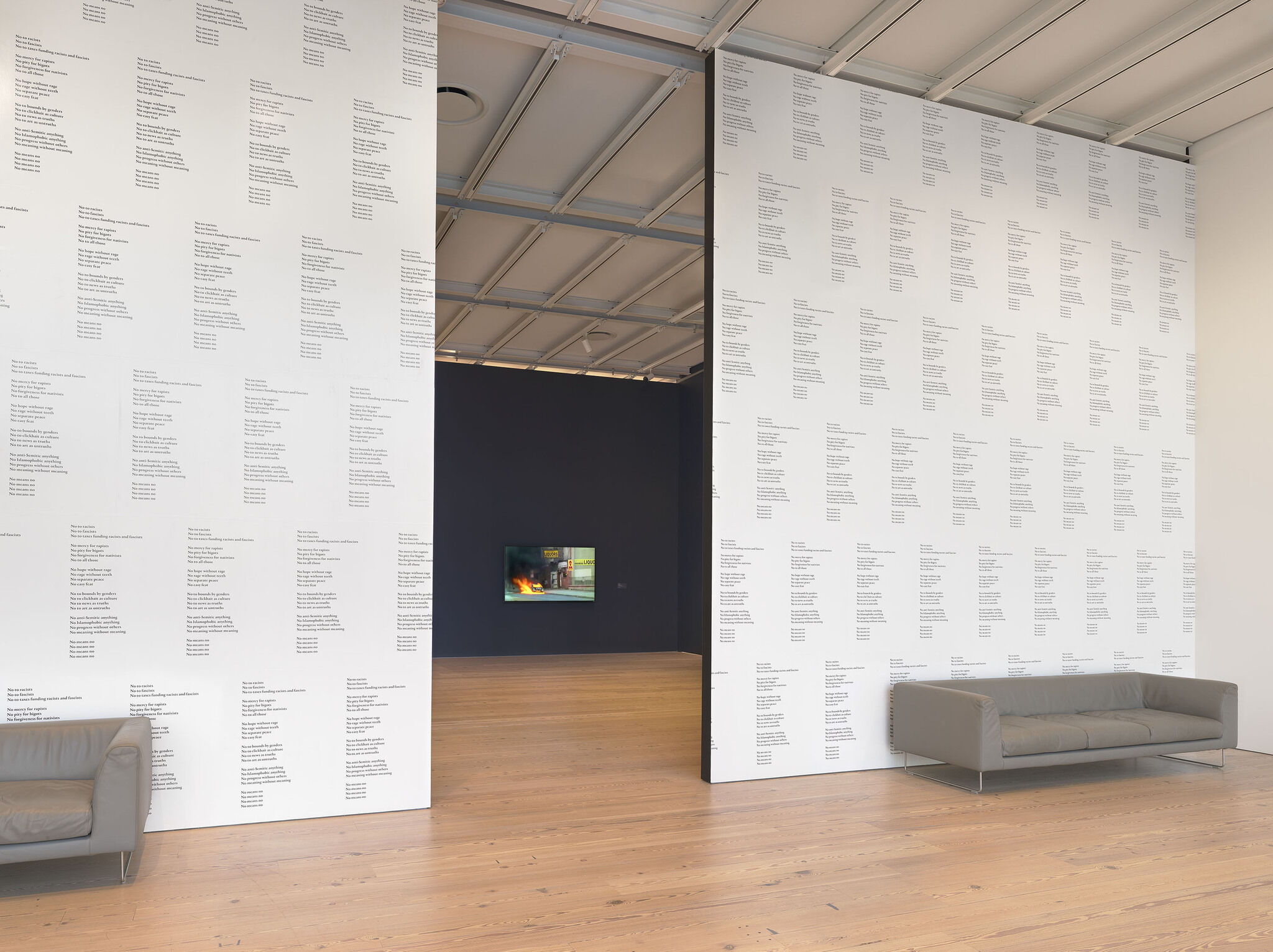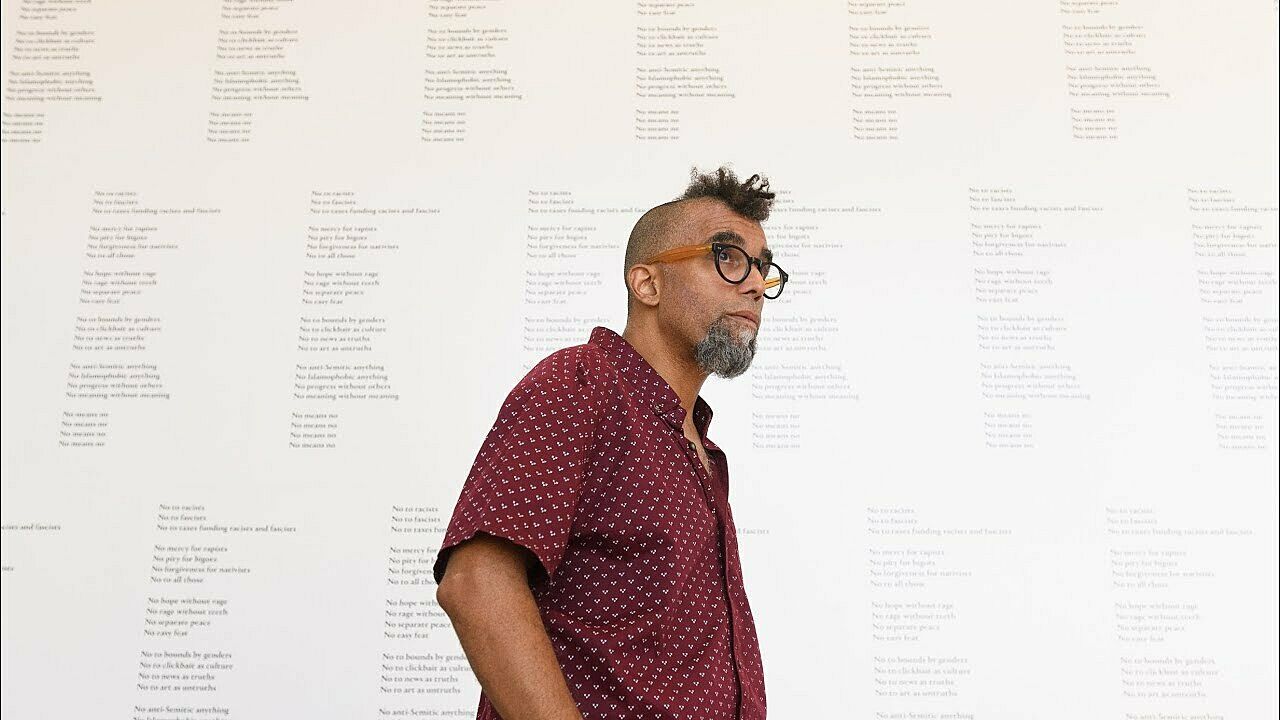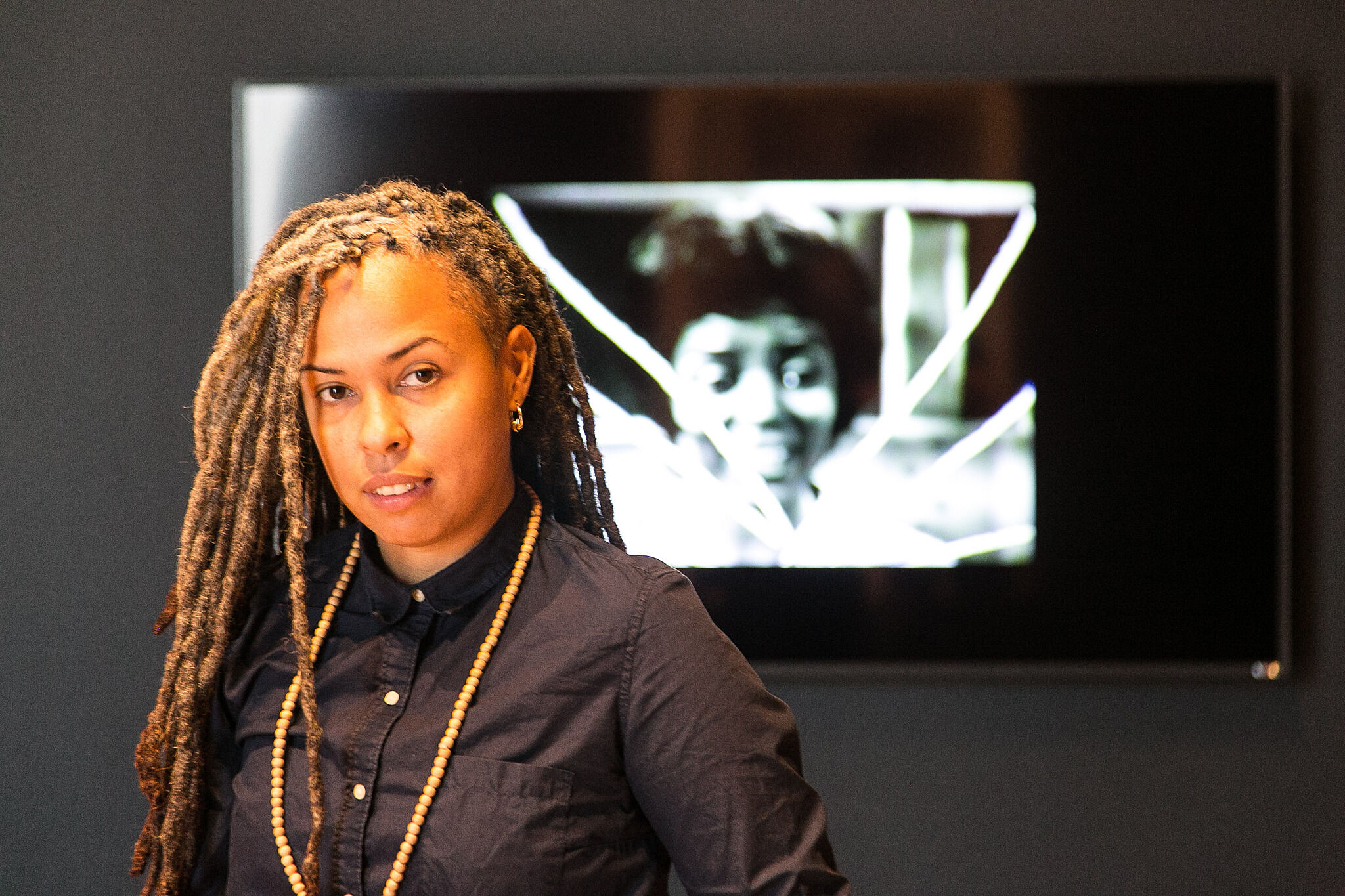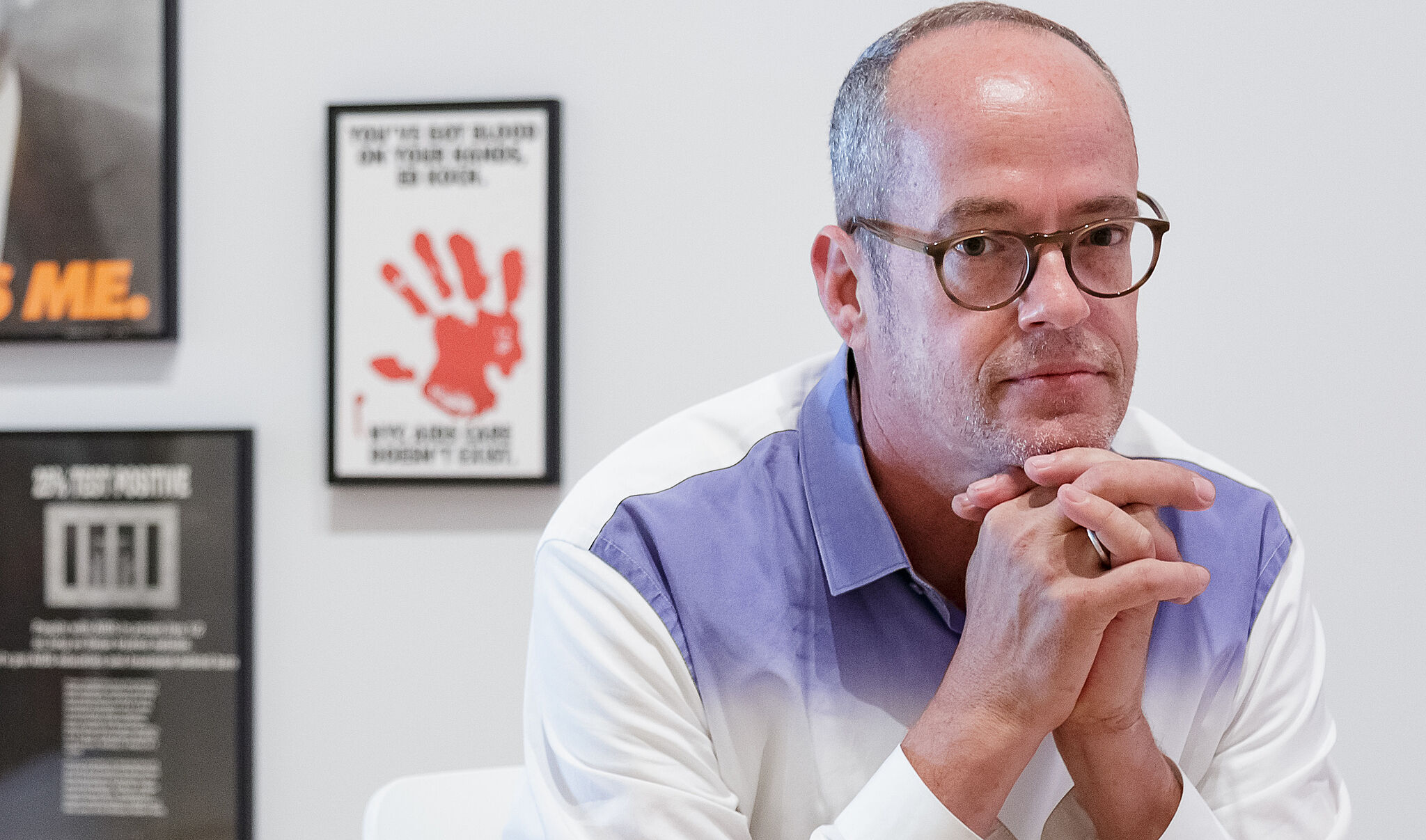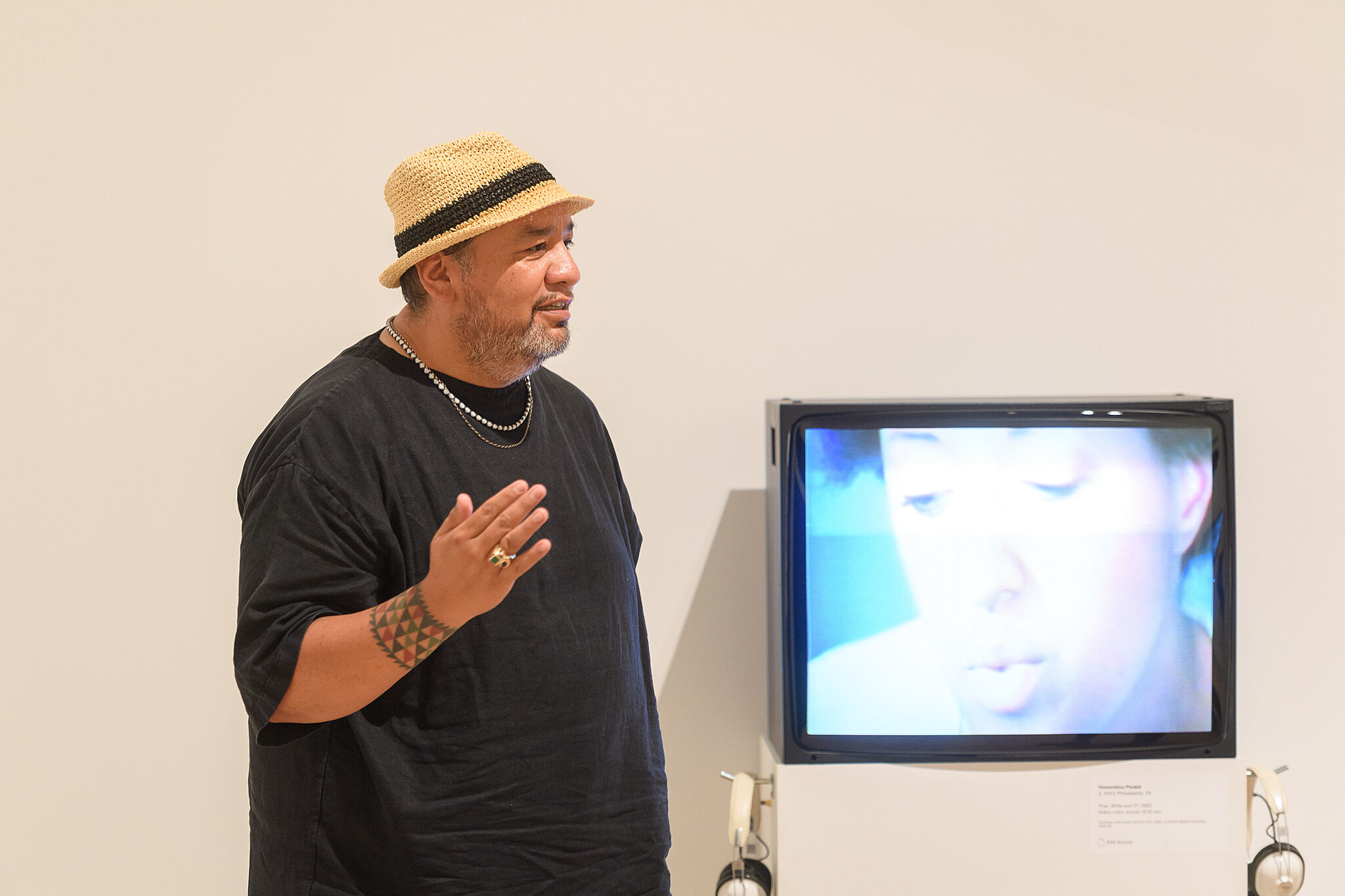An Incomplete History of Protest: Selections from the Whitney’s Collection, 1940–2017
Aug 18, 2017–Aug 27, 2018
Through the lens of the Whitney’s collection, An Incomplete History of Protest looks at how artists from the 1940s to the present have confronted the political and social issues of their day. Whether making art as a form of activism, criticism, instruction, or inspiration, the featured artists see their work as essential to challenging established thought and creating a more equitable culture. Many have sought immediate change, such as ending the war in Vietnam or combating the AIDS crisis. Others have engaged with protest more indirectly, with the long term in mind, hoping to create new ways of imagining society and citizenship.
Since its founding in the early twentieth century, the Whitney has served as a forum for the most urgent art and ideas of the day, at times attracting protest itself. An Incomplete History of Protest, however, is by name and necessity a limited account. No exhibition can approximate the activism now happening in the streets and online, and no collection can account fully for the methodological, stylistic, and political diversity of artistic address. Instead, the exhibition offers a sequence of historical case studies focused on particular moments and themes—from questions of representation to the fight for civil rights—that remain relevant today. At the root of the exhibition is the belief that artists play a profound role in transforming their time and shaping the future.
An Incomplete History of Protest: Selections from the Whitney’s Collection, 1940–2017 is organized by David Breslin, DeMartini Family Curator and Director of the Collection; Jennie Goldstein, assistant curator; and Rujeko Hockley, assistant curator; with David Kiehl, curator emeritus; and Margaret Kross, curatorial assistant.
Major support for An Incomplete History of Protest: Selections from the Whitney’s Collection, 1940‒2017 is provided by The American Contemporary Art Foundation, Inc., Leonard A. Lauder, President.
Significant support is provided by the Ford Foundation.
No Idle Gesture
5
Beginning in the 1960s, the feminist movement grew increasingly vocal and influential. Advocating for the legal and social rights of women, it addressed reproductive freedom, domestic and sexual violence, and the family, among other pressing concerns. These works focus on feminist explorations of labor, whether in the home or workplace.
The slogan “the personal is political” became both rallying cry and directive in this period for many artists, both male and female, who often used video and photography to give visibility to their lived experiences. Suzanne Lacy and Martha Rosler employ absurdity and humor to suggest that meaning and gendered roles are socially constructed. In her Free, White and 21 (1980), Howardena Pindell details her experiences with racism and sexism in both the feminist movement and in jobs, calling attention to the specific mental and emotional labor required of people of color in white-dominated spaces. Since the 1980s, the Guerrilla Girls have unmasked the unequal status of women as art workers and fought for the inclusion of women and people of color in major art institutions. Their protest is ongoing.
Artists
- John Ahearn
- Emma Amos
- Richard Avedon
- Rudolf Baranik
- Bastian
- Andrea Bowers
- Mark Bradford
- AA Bronson
- Paul Burlin
- Andrew Castrucci
- Paul Chan
- Mel Chin
- Larry Clark
- Clergy and Laymen Concerned
- Sue Coe
- William N. Copley
- william cordova
- Crash
- Greg Daily
- Allan D'Arcangelo
- Bruce Davidson
- Daze
- Richard Deagle
- Jane Dickson
- Louis H. Draper
- Hock E Aye Vi Edgar Heap of Birds
- Melvin Edwards
- England Free Press
- Avram Finkelstein
- Larry Fink
- Hermine Freed
- Vincent Gagliostro
- Ja'Tovia Gary
- Theaster Gates
- General Idea
- Jeffrey Gibson
- John Giorno
- Leon Golub
- Felix Gonzalez-Torres
- Gran Fury
- Nancy Grossman
- Gross National Product
- Group Material
- Guerrilla Girls
- Keith Haring
- Leslie Hewitt
- Charles B. Hinman
- Jenny Holzer
- International Union of Students
- Rashid Johnson
- Mary Kelly
- Edward Kienholz
- Barbara Kruger
- Kiyoshi Kuromiya
- Suzanne Lacy
- Tom Lafferty
- Lambert Studios, Inc.
- Annette Lemieux
- John Lennon
- Glenn Ligon
- Fred Lonidier
- A. Lunsford
- Michael Lynne
- Daniel Joseph Martinez
- Josephine Meckseper
- Julie Mehretu
- Toyo Miyatake
- Mobilization by the Antioch Bookplate Co.
- Donald Moffett
- Frank Moore
- Peter Moore
- Robert Morris
- Napalm Graphics
- National Peace Action Coalition
- Senga Nengudi
- Louise Nevelson
- New Mobilization Committee to End the War in Vietnam
- Northern California Peace Action Coalition
- Yoko Ono
- Gordon Parks
- Dan Patterson
- Don Peterson
- Irving Petlin
- Howardena Pindell
- Carl Pope
- Pro-Arts, Inc.
- Ad Reinhardt
- Marlon Riggs
- Faith Ringgold
- Kay Rosen
- Martha Rosler
- Robert L. Ross
- Santa Monica Moratorium Committee
- Dread Scott
- Brian Shannon
- Gary Simmons
- Leif Skoogfors, 1940-
- Jaune Quick-to-See Smith
- Jack Sonenberg
- SP/4 Vietnam
- Nancy Spero
- Tom Starace
- May Stevens
- Student Mobilization Committee to End the War in Vietnam
- Carol Summers
- the Gallery
- The Union of Vietnamese in the United States
- Tim Rollins and K.O.S.
- Mierle Laderman Ukeles
- United Women’s Contingent
- Unknown artist
- Various artists
- Vietnam Day Committee
- Vietnam Peace Parade Committee
- Vietnam Referendum '70
- Kara Walker
- William Weege
- David Weinrib
- Irving White
- David Wojnarowicz
- Joseph Wolin
- Women Strike for Peace
- Martin Wong
- Adja Yunkers
Events
View all-
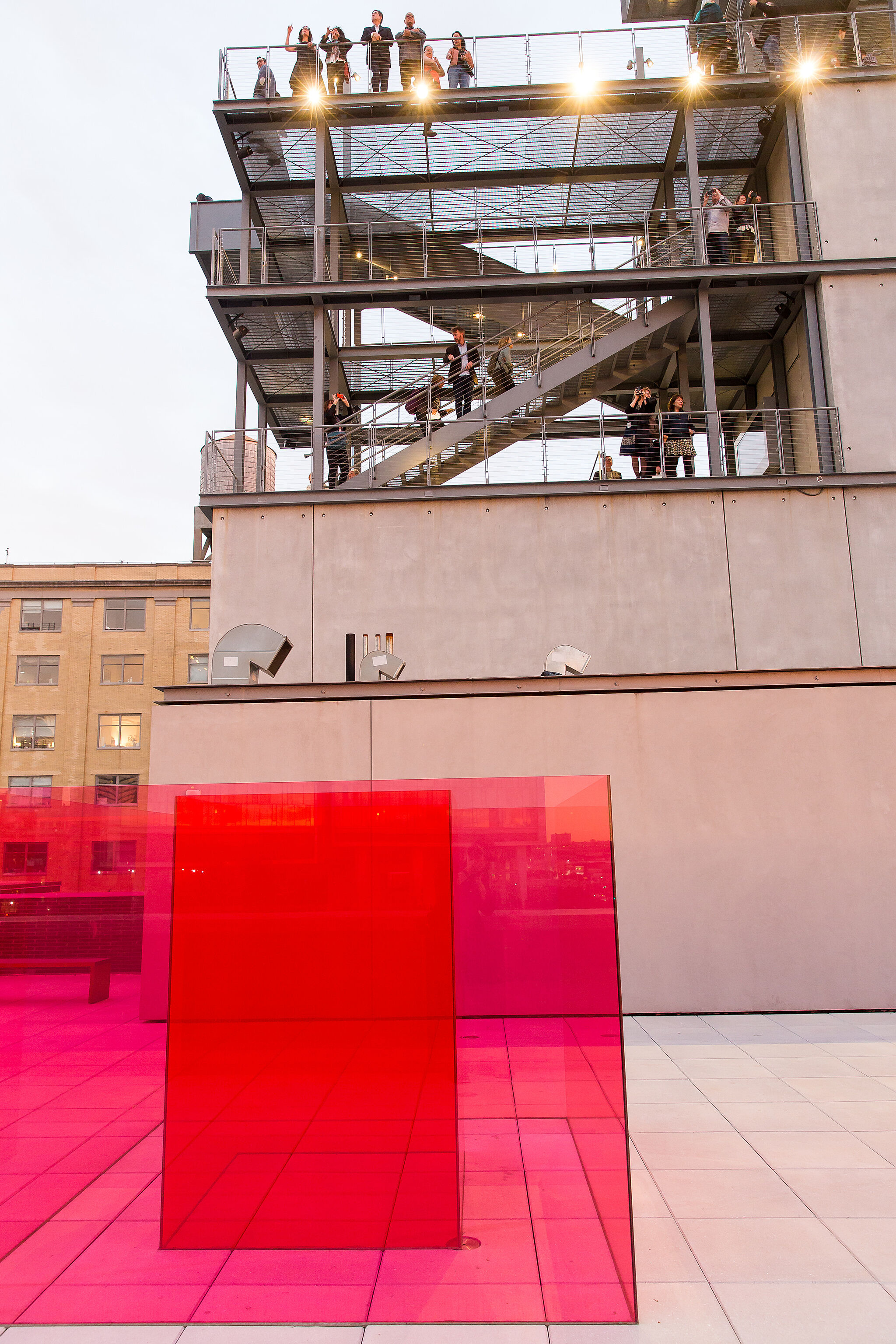
Member Night
Wednesday, July 18, 2018
7:30–10 pm -
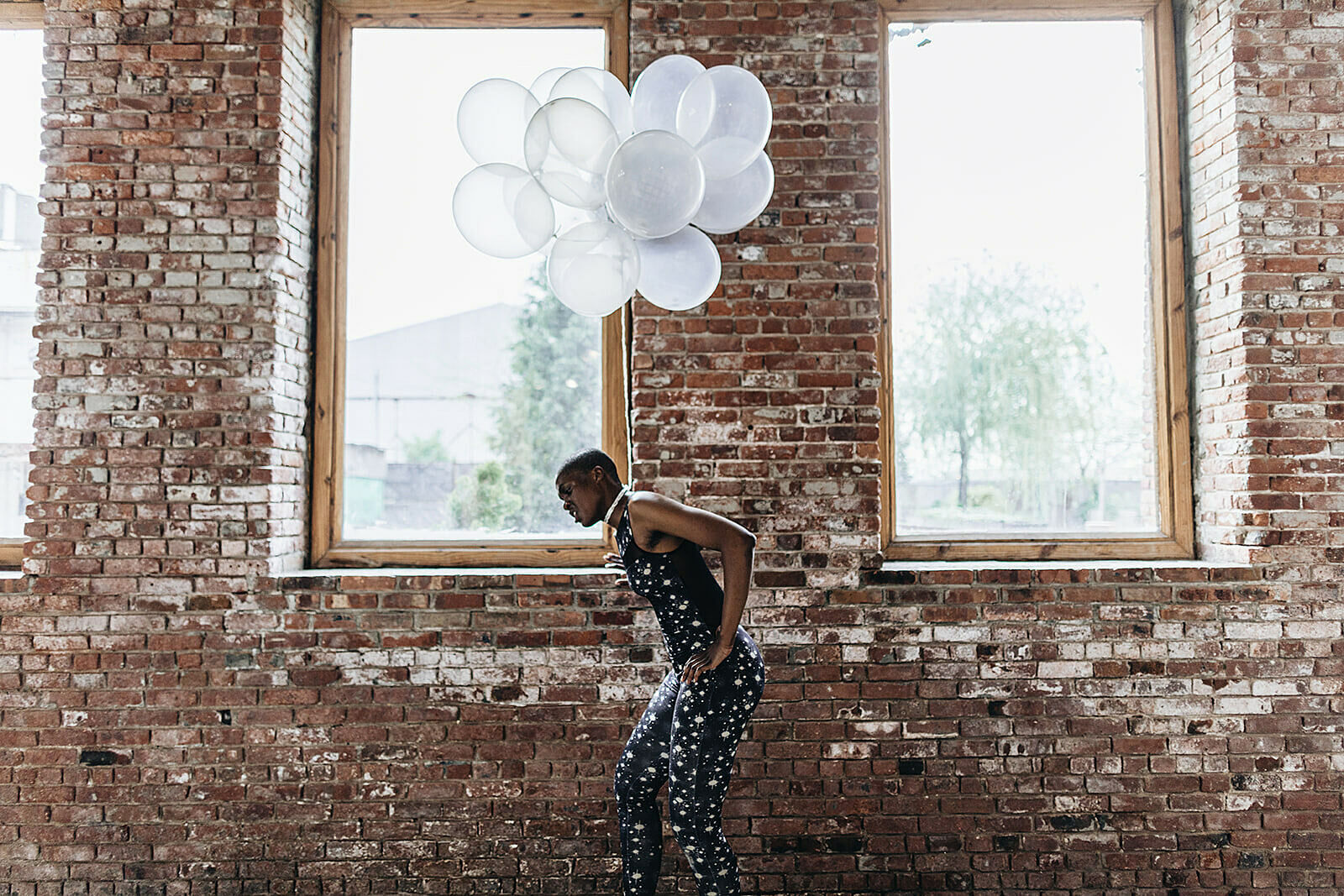
Pride at the Whitney
Friday, June 15, 2018
7–9 pm -
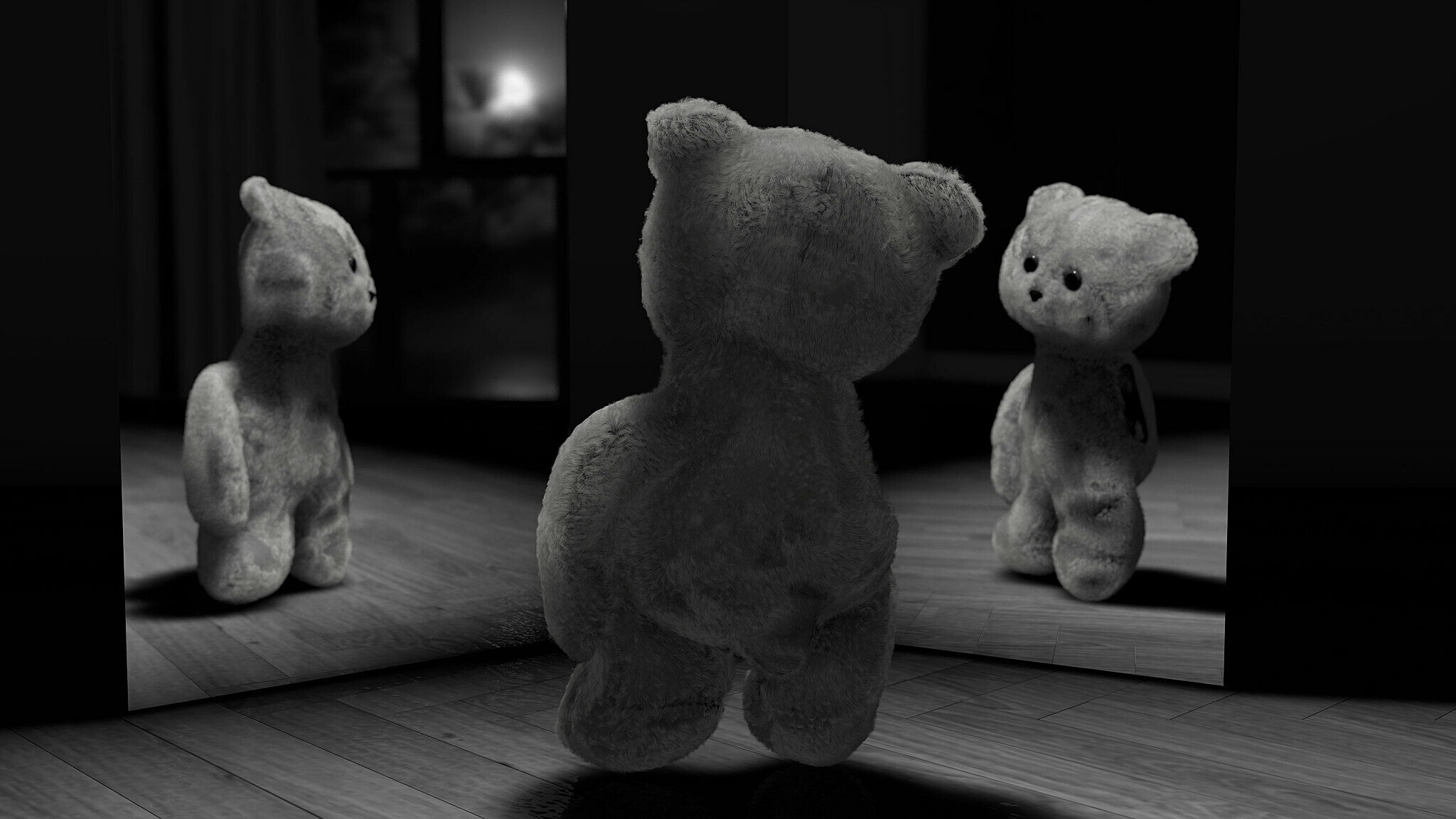
Immigrant Justice Night
Wednesday, April 18, 2018
4–6 pm -
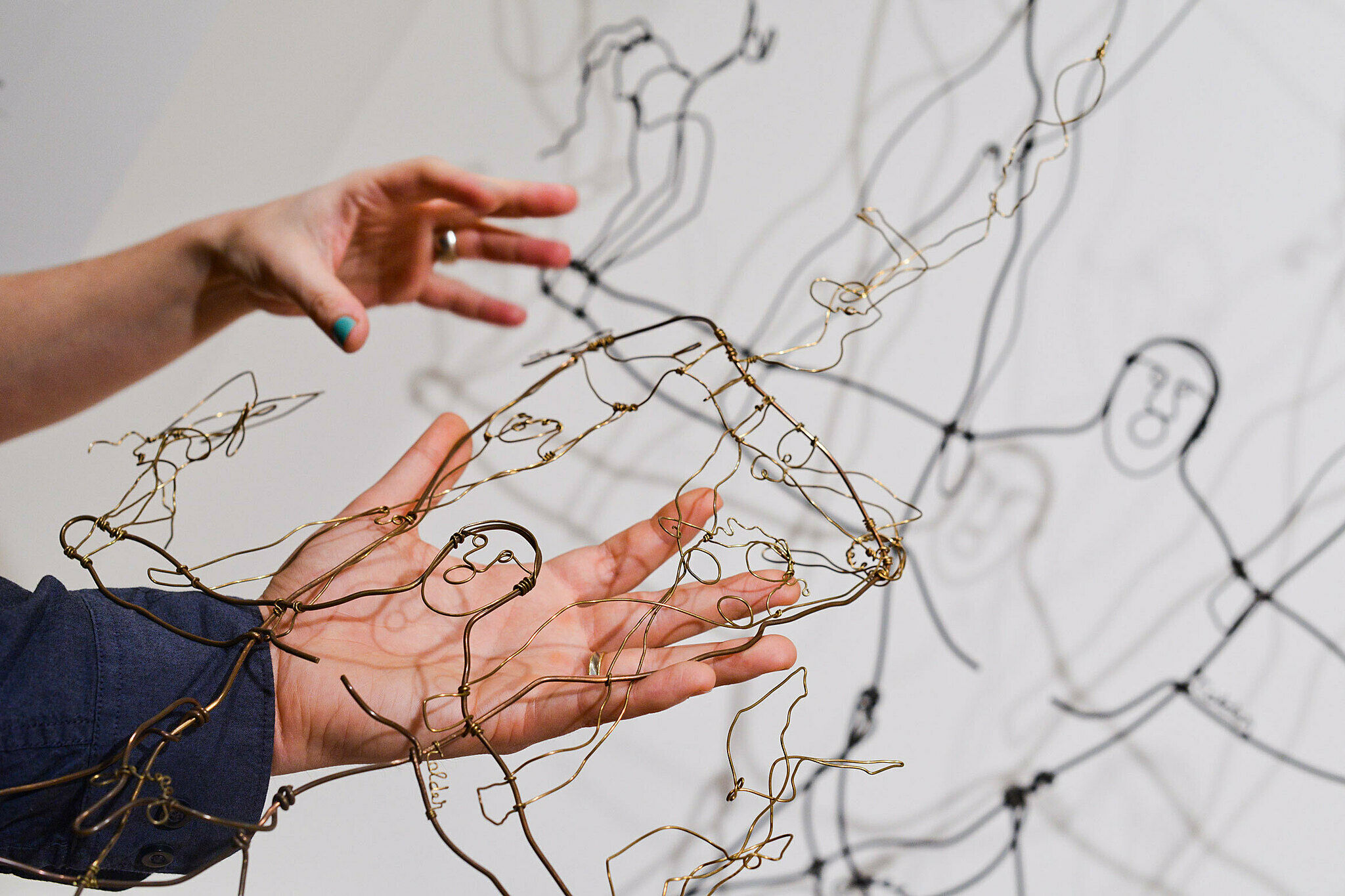
Verbal Description and Touch Tour: An Incomplete History of Protest: Selections from the Whitney’s Collection, 1940–2017
Friday, February 16, 2018
10–11:30 am
Mobile guides
“I make revolutionary art to propel history forward. I’m a visual artist.”
—Dread Scott
Hear directly from artists including Dread Scott, and Senga Nengudi as they discuss their work in An Incomplete History of Protest: Selections from the Whitney’s Collection, 1940–2017. Listen to additional commentary from curators on selected highlights from the exhibition.
Explore works from this exhibition
in the Whitney's collection
View 213 works
In the News
"An Incomplete History of Protest examines how artists have become activists in order to help create a better future.”
—The Guardian
“Get To Know An Incomplete History Of Protest at the Whitney”
—NYLON
“The Whitney Museum’s latest exhibition takes a creative approach to political and social activism, and how the past can inform the present.”
—WWD
“At the root of the exhibition is the belief that artists play a profound role in transforming their time and shaping the future.”
—blouinartinfo

